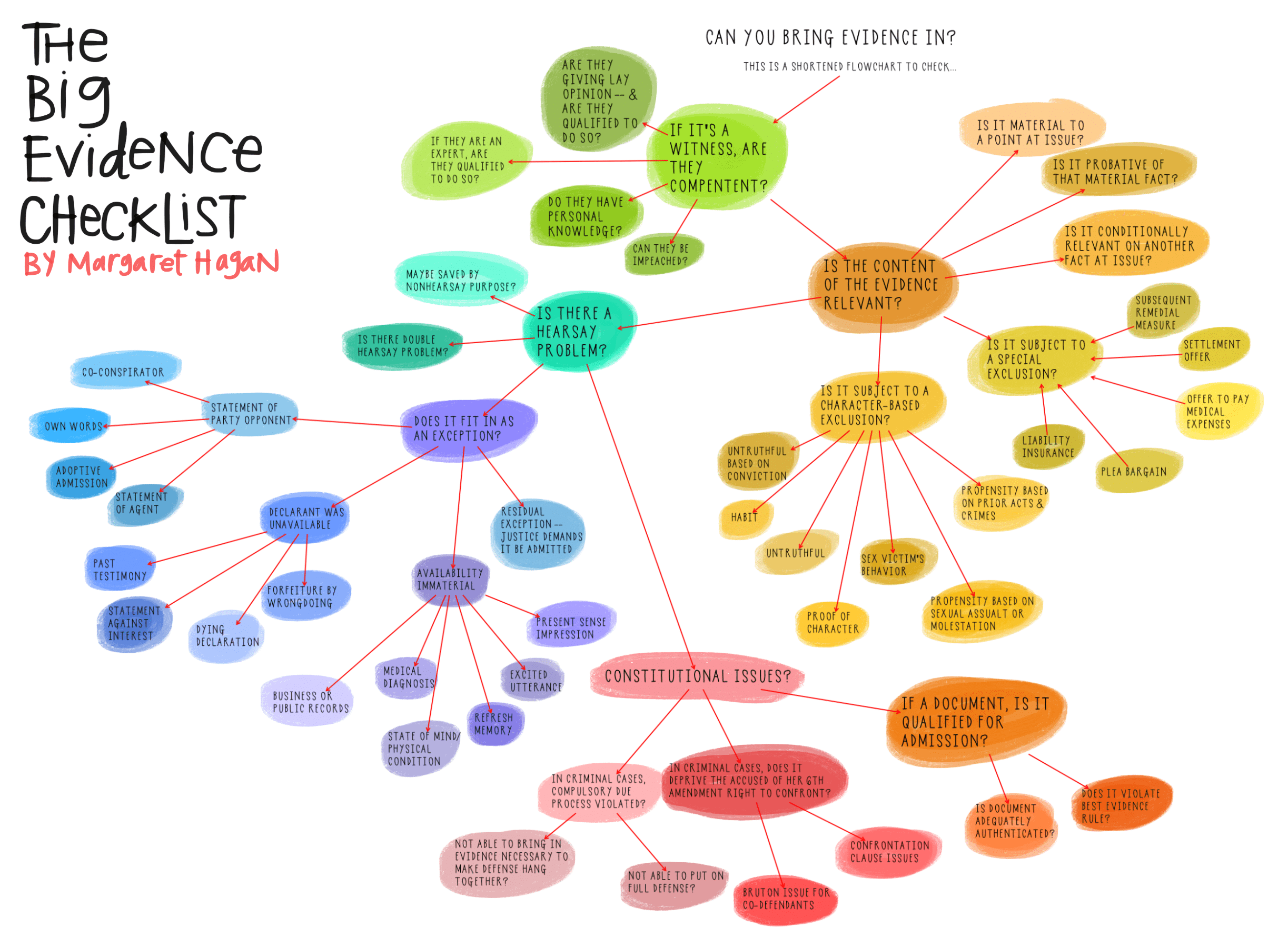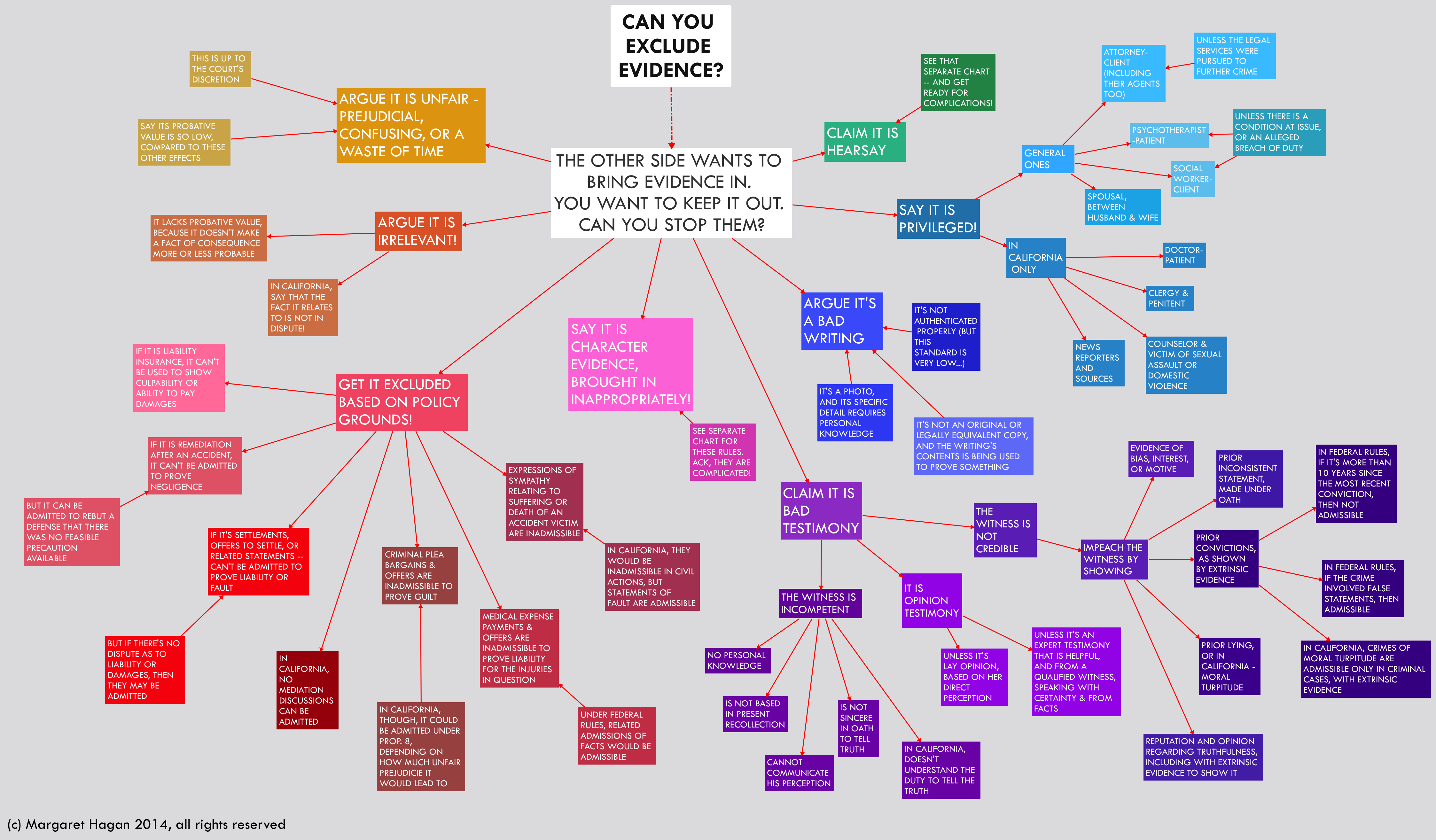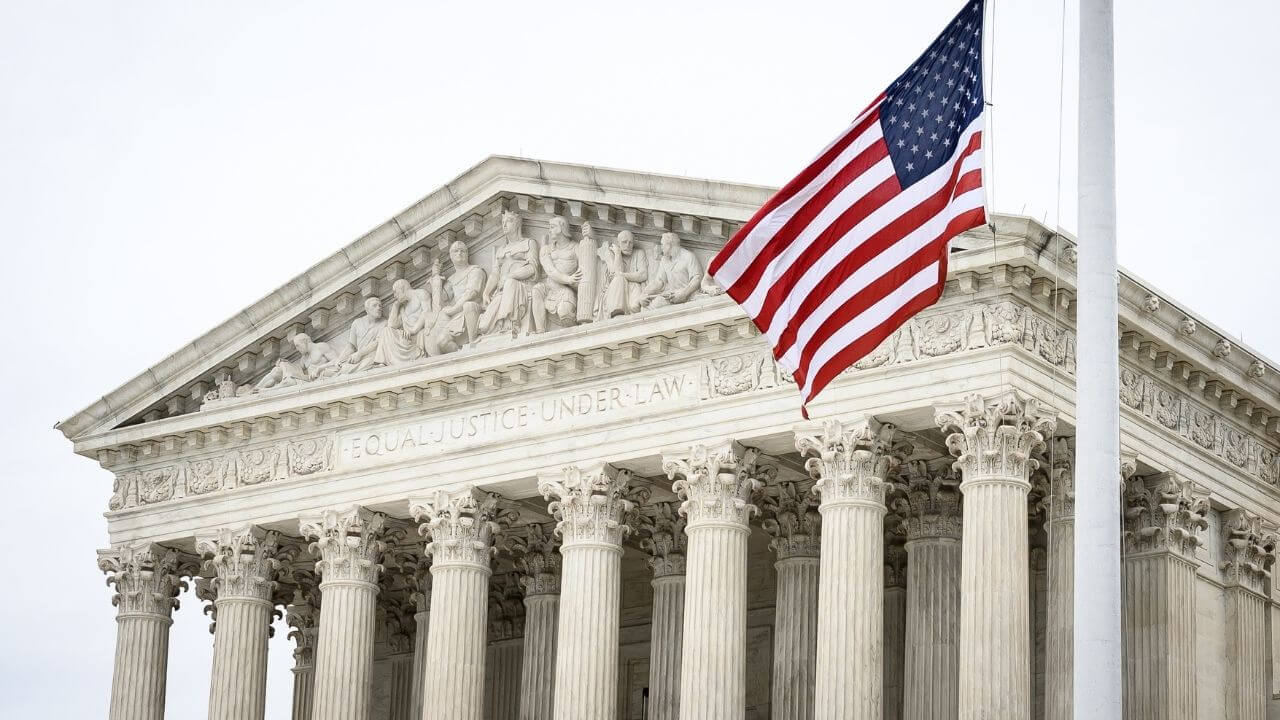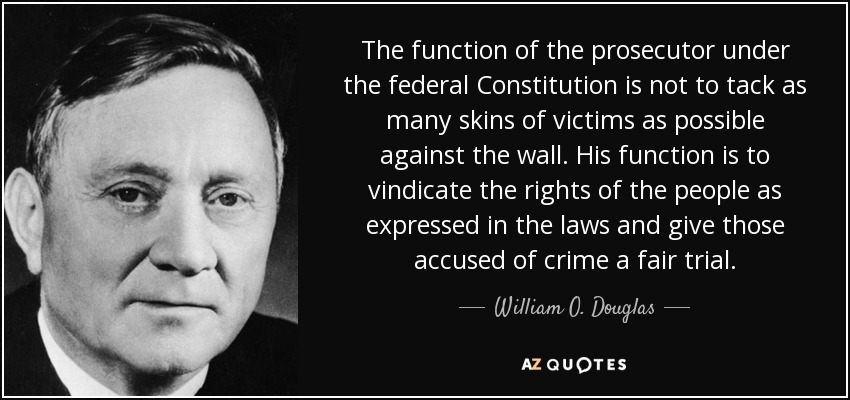Prosecutional Misconduct – SCOTUS Rulings re: Prosecutors
Misconduct by the Prosecutor
the prosecutor is a mere servant to the sovereign people to uphold the Constitution 1st and our laws 2nd, the law we vote for or are made by our elected servants we chose anything outside of these boundaries is treason to the US Constitution and their Sworn Oath and is abuse of immunity and civil rights and is a crime you will be held accountable by your employer, us the sovereign people! you are mere actors of the state servants to the people!
FRAUD$ BY GOVERNMENT
McNally v. U.S., 483 U.S. 350, 371-372 (1987), McNally v. U.S., 483 U.S. 350, 371-372 (1987), Quoting U.S. v. Holzer, 816 F.2d. 304, 307: “Fraud in its elementary common law sense of deceit – and this is one of the meanings that fraud bears in the statute, see United States v. Dial, 757 F.2d 163, 168 (7th Cir. 1985) – includes the deliberate concealment of material information in a setting of fiduciary obligation. A public official is a fiduciary toward the public, including, in the case of a judge, the litigants who appear before him, and if he deliberately conceals material information from them he is guilty of fraud. BURDEN OF PROOF ”
The law creates a presumption, where the burden is on a party to prove a material fact peculiarly within his knowledge and he fails without excuse to testify, that his testimony, if introduced, would be adverse to his interests.” citing Meier v. CIR, 199 F 2d 392, 396 (8th Cir. 1952) quoting 20 Am Jur, Evidence, Sec 190, page 193 Notification of legal responsibility is “the first essential of due process of law”. See also:U.S. v. Tweel, 550 F.2d.297. “Silence can only be equated with fraud where there is a legal or moral duty to speak or when an inquiry left unanswered would be intentionally misleading.” Clearfield Doctrine “Governments descend to the Level of a mere private corporation, and take on the characteristics of a mere private citizen…where private corporate commercial paper [Federal Reserve Notes] and securities [checks] is concerned. … For purposes of suit, such corporations and individuals are regarded as entities entirely separate from government.”
Pro$ecutor‘$ Duty to the citizen
Bias – Removal of Prosecutor People v. Superior Court (Greer)
Abuse – Removal of Prosecutor People v. Superior Court (Greer)
California Supreme Court Rules: Text Messages Sent on Private Government Employees Lines Subject to Open Records Requests
Employers Beware: La Supreme Court Opens Line for Direct Negligence Claims from Employee Actions
Martin v. Thomas et al. 2022 – Employer Independent Negligence
Anti-SLAPP Law in California
Thompson v. Clark – Maliciou$ Prosecution claim under § 42 U.S.C. 1983 Click Here
20-659 Thompson v. Clark (04-04-2022) – Suing the Government
In its landmark decision, Bivens v. Six Unknown Named Agents of the Federal Bureau of Narcotics, 403 U.S. 388 (1971), the U.S. Supreme Court held that federal officials can be sued personally for money damages for on-the-job conduct that violates the Constitution. Cases in which federal employees face personal liability cut across everything the government does in all three branches of government. Whether they are engaging in every-day law enforcement, protecting our borders, addressing national security, or implementing other critical government policies and functions, federal employees of every rank face the specter of personal liability.
This ruling has a complexity to it, that does not favor a malicious prosecutor or police force. it holds them accountable! New Supreme Court Ruling makes it easier to sue police when criminal charges are dropped or dismissed. This hold the prosecutor accountable because an attorney has a fiduciary duty to his client, meaning that a relation “exist[s] between parties to a transaction wherein one of the parties is duty bound to act with the utmost good faith in the benefit of the other party. Such a relation ordinarily arises when a confidence is reposed by one person in the integrity of another, and in such a relation the party in whom the confidence is reposed, if he [or she] voluntarily accepts or assumes to accept the confidence, can take no advantage from his [or her] acts relating to the interest of the other party without the latter’s knowledge or consent. . . . ”
An attorney may not seek, accept or continue employment where it is not substantiated by probable cause, thus an attorney may not prosecute any case that is not well - 1 Cal. Rules Prof. Conduct, Rule 1-400. 2 Id. 3 McKinnery State Bar, 62 Cal.2d 194, 196 (1964); Culter v. State Bar of California, 71 Cal.2d 241, 249 (1969); see also Coulello v. State of California, 45 Cal.2d 57 (1955); Hallinan v. State Bar of California, 33 Cal.2d 246 (1948). Clearly, this duty applies not only with reference to the client but also with regard to the court, opposing counsel. 4 Cal. Rules Prof. Conduct, Rule 3 -200; Cal. Bus. & Prof. Code
-
6068(c). The ABA Model Rules of Professional Conduct, Rule 3.1 & 4.4, also impose a duty to the legal
system which requires both that the attorney bring only meritorious claims and that they not use inappropriate means in the representation of their client that embarrass, bur den, delay or violate legal rights. Barbara A. v. John G., 145 Cal.App.3d 369 (1983) (citing Herbert v. Lankershim, 9 Cal.2d 409, 483 (1937); Bacon v. Soule, 19 Cal.App. 428, 434 (1912)
Attorney Rule$ of Engagement – Government (A.K.A. THE PRO$UCTOR) and Public/Private Attorney
What is a Fiduciary Duty; Breach of Fiduciary Duty
The Attorney’s Sworn Oath
Malicious Prosecution / Prosecutorial Misconduct – Know What it is!
New Supreme Court Ruling Makes it easier to Sue PROSECUTORS & POLICE
42 U.S.C.A. Sec. 1983.” Trezevant v. City of Tampa (1984) 741 F.2d 336, hn. 5 Mattox v. U.S., 156 US 237,243. (1895) “We are bound to interpret the Constitution in the light of the law as it existed at the time it was adopted.”
S. Carolina v. U.S., 199 U.S. 437, 448 (1905).“The Constitution is a written instrument. As such, its meaning does not alter. That which it meant when it was adopted, it means now.”
SHAPIRO vs. THOMSON, 394 U. S. 618 April 21, 1969 .Further, the Right to TRAVEL by private conveyance for private purposes upon the Common way can NOT BE INFRINGED. No license or permission is required for TRAVEL when such TRAVEL IS NOT for the purpose of [COMMERCIAL] PROFIT OR GAIN on the open highways operating under license IN COMMERCE.
Murdock v. Penn., 319 US 105, (1943) “No state shall convert a liberty into a privilege, license it, and attach a fee to it.”
Shuttlesworth v. Birmingham, 373 US 262, (1969) “If the state converts a liberty into a privilege, the citizen can engage in the right with impunity.”
Miranda v. Arizona, 384 U.S. 436, (1966) “Where rights secured by the Constitution are involved, there can be no rule making or legislation, which would abrogate them.”
Norton v. Shelby County, 118 U.S. 425, (1886) “An unconstitutional act is not law; it confers no rights; it imposes no duties; affords no protection; it creates no office; it is in legal contemplation, as inoperative as though it had never been passed.” Miller v. U.S., 230 F.2d. 486 ,489 “The claim and exercise of a Constitutional right cannot be converted into a crime.”
Cooper v. Aaron, 358 U.S. 1, 78 S.Ct. 1401 (1958). “No state legislator or executive or judicial officer can war against the Constitution without violating his undertaking to support it.” The constitutional theory is that we the people are the sovereigns, the state and federal officials only our agents.”
Alexander v.Bothsworth, 1915. “Party cannot be bound by contract that he has not made or authorized. Free consent is an indispensable element in making valid contracts.”
Hale v. Henkel 201 U.S. 43 at 89 (1906) HALE v. HENKEL 201 U.S. 43 at 89 (1906) Hale v. Henkel was decided by the united States Supreme Court in 1906. The opinion of the court states: “The “individual” may stand upon “his Constitutional Rights“ as a CITIZEN. He is entitled to carry on his “private” business in his own way. “His power to contract is unlimited.” He owes no duty to the State or to his neighbors to divulge his business, or to open his doors to an investigation, so far as it may tend to incriminate him. He owes no duty to the State, since he receives nothing there from, beyond the protection of his life and property. “His rights” are such as “existed” by the Law of the Land (Common Law) “long antecedent” to the organization of the State”, and can only be taken from him by “due process of law”, and “in accordance with the Constitution.” “He owes nothing” to the public so long as he does not trespass upon their rights.”
Hale v. Henkel 201 U.S. 43 at 89 (1906) Hale v. Henkel is binding on all the courts of the United States of America until another Supreme Court case says it isn’t. No other Supreme Court case has ever overturned Hale v. Henkel None of the various issues of Hale v. Henkel has ever been overruled Since 1906, Hale v. Henkel has been cited by the Federal and State Appellate Court systems over 1,600 times! In nearly every instance when a case is cited, it has an impact on precedent authority of the cited case. Compared with other previously decided Supreme Court cases, no other case has surpassed Hale v. Henkel in the number of times it has been cited by the courts. Basso v. UPL, 495 F. 2d 906 Brook v. Yawkey, 200 F. 2d 633
None of the various issues of Hale v. Henkel has ever been overruled Since 1906, Hale v. Henkel has been cited by the Federal and State Appellate Court systems over 1,600 times! In nearly every instance when a case is cited, it has an impact on precedent authority of the cited case. Compared with other previously decided Supreme Court cases, no other case has surpassed Hale v. Henkel in the number of times it has been cited by the courts. Basso v. UPL, 495 F. 2d 906 Brook v. Yawkey, 200 F. 2d 633
Elliot v. Piersol, 1 Pet. 328, 340, 26 U.S. 328, 340 (1828) Under federal Law, which is applicable to all states, the U.S. Supreme Court stated that “if a court is without authority, its judgments and orders are regarded as nullities. They are not voidable, but simply void, and form no bar to a recovery sought, even prior to a reversal in opposition to them. They constitute no justification and all persons concerned in executing such judgments or sentences are considered, in law, as trespassers.” Griffin v. Mathews, 310 Supp. 341, 423 F. 2d 272 Hagans v. Lavine, 415 U.S. 528 Howlett v. Rose, 496 U.S. 356 (1990) Federal Law and Supreme Court Cases apply to State Court Cases. Sims v. Aherns, 271 SW 720 (1925) ”
In Berger v. United States, 295 U.S. 78 (1935), Justice Sutherland characterized prosecutorial misconduct as “overstepp[ing] the bounds of that propriety and fairness which should characterize the conduct of such an officer in the prosecution of a criminal offense.” In the years since Berger, advocates for the wrongly convicted have increasingly focused on prosecutors’ failure to disclose favorable evidence – what are known as “Brady” violations, after the 1963 case of Brady v. Maryland – as one of the most harmful and pervasive forms of prosecutorial misconduct.
In the Dewayne Brown case, for example, a long-buried email chain uncovered more than a decade after Brown’s trial revealed that the trial prosecutor, Dan Rizzo, had deliberately hidden phone records from Brown’s defense attorney that supported Brown’s alibi. Those records might have stayed hidden forever had the police officer who originally obtained them not saved and found a copy in his garage while Brown was wrongfully incarcerated on death row. It was only after the original records were turned over and Brown was released from death row that a special prosecutor assigned to the case concluded that Rizzo not only knew about the phone records before trial, but had knowingly concealed them from Brown’s defense team.
Another example is the case of Stanley Mozee and Dennis Allen, who were both exonerated in Dallas, Texas, in 2019 after spending more than 15 years in prison for a murder they did not commit. Their joint exoneration was based on documents located in the files of the trial prosecutor, Rick Jackson, showing that he’d knowingly put on false testimony from several jailhouse informants and suppressed key evidence from eyewitnesses that would have strongly supported Mozee’s and Allen’s innocence claims. source
Juri$diction
[U.S. v. Gernie, 228 F.Supp. 329 (D.C.N.Y. 1964)] Jurisdiction of court may be challenged at any stage of the proceeding, and also may be challenged after conviction and execution of judgment by way of writ of habeas corpus.
Ableman v. Booth, 21 Howard 506 (1859) “No judicial process, whatever form it may assume, can have any lawful authority outside of the limits of the juri$diction of the court or judge by whom it is issued; and an attempt to enforce it beyond these boundaries is nothing less than lawless violence.”
“Juri$diction, once challenged, cannot be assumed and must be decided.” Maine v. Thiboutot, 100 S. Ct. 250
[U.S. v. Rogers, 23 F. 658 (D.C.Ark. 1885)] In a criminal proceeding lack of subject matter jurisdiction cannot be waived and may be asserted at any time by collateral attack.
how Jurisdiction & immunity is violated Murphy v. Ross, Civil Action No. 3:14cv870 (E.D. Va. Apr. 14, 2015)
U.S. v. Tweel, 550 F. 2d. 297, 299, 300 (1977) Silence can only be equated with fraud when there is a legal and moral duty to speak or when an inquiry left unanswered would be intentionally misleading. We cannot condone this shocking conduct… If that is the case we hope our message is clear. This sort of deception will not be tolerated and if this is routine it should be corrected immediately.
Morrison v. Coddington, 662 P. 2d. 155, 135 Ariz. 480(1983). Fraud and deceit may arise from silence where there is a duty to speak the truth, as well as from speaking an untruth. In regard to courts of inferior jurisdiction, “if the record does not show upon its face the facts necessary to give jurisdiction, they will be presumed not to have existed.”
NO IMMUNITY
“Sovereign immunity does not apply where (as here) government is a lawbreaker or jurisdiction is the issue.” Arthur v. Fry, 300 F.Supp. 622 “Knowing failure to disclose material information necessary to prevent statement from being misleading, or making representation despite knowledge that it has no reasonable basis in fact, are actionable as fraud under law.” Rubinstein v. Collins, 20 F.3d 160, 1990
[a] “Party in interest may become liable for fraud by mere silent acquiescence and partaking of benefits of fraud.” Bransom v. Standard Hardware, Inc., 874 S.W.2d 919, 1994
Ex dolo malo non oritur actio. Out of fraud no action arises; fraud never gives a right of action. No court will lend its aid to a man who founds his cause of action upon an immoral or illegal act. As found in Black’s Law Dictionary, Fifth Edition, page 509.
“Fraud destroys the validity of everything into which it enters,” Nudd v. Burrows, 91 U.S 426.
“Fraud vitiates everything” Boyce v. Grundy, 3 Pet. 210
“Fraud vitiates the most solemn contracts, documents and even judgments.” U.S. v. Throckmorton, 98 US 61
U.S. v. Lee, 106 U.S. 196, 220 1 S. Ct. 240, 261, 27 L. Ed 171 (1882) “No man in this country is so high that he is above the law. No officer of the law may set that law at defiance with impunity. All the officers of the government, from the highest to the lowest, are creatures of the law and are bound to obey it. “
Civil Rights Torts
Thompson v. Clark 2022 – MALICIOUS PROSECUTOR & OFFICER
Holding: Larry Thompson’s showing that his criminal prosecution ended without a conviction satisfies the requirement to demonstrate a favorable termination of a criminal prosecution in a Fourth Amendment claim under Section 1983 for malicious prosecution; an affirmative indication of innocence is not needed.
Bivens v. Six Unknown Named Agents of the Federal Bureau of Narcotics,
403 U.S. 388 (1971), the U.S. Supreme Court held that federal officials can be sued personally for money damages for on-the-job conduct that violates the Constitution. Cases in which federal employees face personal liability cut across everything the government does in all three branches of government. Whether they are engaging in every-day law enforcement, protecting our borders, addressing national security, or implementing other critical government policies and functions, federal employees of every rank face the specter of personal liability.
When a Citizen challenges the acts of a federal or state official as being illegal, that official cannot just simply avoid liability based upon the fact that he is a public official. In United States v. Lee, 106 U.S.196, 220, 221, 1 S.Ct. 240, 261, the United States claimed title to Arlington, Lee’s estate, via a tax sale some years earlier, held to be void by the Court. In so voiding the title of the United States, the Court declared:
“No man in this country is so high that he is above the law. No officer of the law may set that law at defiance with impunity. All the officers of the government, from the highest to the lowest, are creatures of the law and are bound to obey it. It is the only supreme power in our system of government, and every man who by accepting office participates in its functions is only the more strongly bound to submit to that supremacy, and to observe the limitations which it imposes upon the exercise of the authority which it gives. “Shall it be said… that the courts cannot give remedy when the citizen has been deprived of his property by force, his estate seized and converted to the use of the government without any lawful authority, without any process of law, and without any compensation, because the president has ordered it and his officers are in possession? If such be the law of this country, it $anction$ a tyranny which has no existence in the monarchies of Europe, nor in any other government which has a just claim to well-regulated liberty and the protection of personal rights.“
Sullivan v. County of Los Angeles – 12 Cal.3d 710 – Mon, 11-04-1974 – MALICIOUS PROSECUTOR & OFFICER
Section 815.2 provides: "(a) A public entity is liable for injury proximately caused by an act or omission of an employee of the public entity within the scope of his employment if the act or omission would, apart from this section, have given rise to a cause of action against that employee or his personal representative.
[8] Malicious prosecution "consists of initiating or procuring the arrest and prosecution of another under lawful process, but from malicious motives and without probable cause. ... [Italics in original.] The test is whether the defendant was actively instrumental in causing the prosecution." (4 Witkin, Summary of Cal. Law (8th ed. 1974) Torts, § 242, pp. 2522-2523.) Cases dealing with actions for malicious prosecution against private persons require that the defendant has at least sought out the police or prosecutorial authorities and falsely reported facts to them indicating that plaintiff has committed a crime. (Rupp v. Summerfield (1958) 161 Cal.App.2d 657, 663 [326 P.2d 912]; Centers v. Dollar Markets (1950) 99 Cal.App.2d 534, 544-545 [222 P.2d 136].) Similarly the suits against government employees or entities cited by the Senate Committee in commenting upon section 821.6 all involve the government employees' acts in filing charges or swearing out affidavits of criminal activity against the plaintiff. fn. 9 No case has predicated a finding of malicious prosecution on the holding of a person in jail beyond his term or beyond the completion of all criminal proceedings against him.United States v. Wiltberger
citedhttps://goodshepherdmedia.net/sullivan-v-county-of-los-angeles/
Civil Rights
Boyd v. United, 116 U.S. 616 at 635 (1885) Justice Bradley, “It may be that it is the obnoxious thing in its mildest form; but illegitimate and unconstitutional practices get their first footing in that way; namely, by silent approaches and slight deviations from legal modes of procedure.This can only be obviated by adhering to the rule that constitutional provisions for the security of persons and property should be liberally construed. A close and literal construction deprives them of half their efficacy, and leads to gradual depreciation of the right, as if it consisted more in sound than in substance. It is the duty of the Courts to be watchful for the Constitutional Rights of the Citizens, and against any stealthy encroachments thereon. Their motto should be Obsta Principiis.”
Downs v. Bidwell, 182 U.S. 244 (1901) “It will be an evil day for American Liberty if the theory of a government outside supreme law finds lodgement in our constitutional jurisprudence. No higher duty rests upon this Court than to exert its full authority to prevent all violations of the principles of the Constitution.”
Duncan v. Missouri, 152 U.S. 377, 382 (1894)“Due process of law and the equal protection of the laws are secured if the laws operate on all alike, and do not subject the individual to an arbitrary exercise of the powers of government.”
Giozza v. Tiernan, 148 U.S. 657, 662 (1893), Citations Omitted “Undoubtedly it(the FourteenthAmendment) forbids any arbitrary deprivation of life, liberty or property, and secures equal protection to all under like circumstances in the enjoyment of their rights… It is enough that there is no discrimination in favor of one as against another of the same class. …And due process of law within the meaning of the(Fifthand Fourteenth) amendment is secured if the laws operate on all alike, and do not subject the individual to an arbitrary exercise of the powers of government.”
Kentucky Railroad Tax Cases, 115 U.S. 321, 337 (1885)“The rule of equality… requires the same means and methods to be applied impartially to all the constitutents of each class, so that the law shall operate equally and uniformly upon all persons in similar circumstances”.
Butz v. Economou, 98 S. Ct. 2894 (1978); United States v. Lee, 106 U.S. at 220, 1 S. Ct. at 261 (1882) “No man [or woman] in this country is so high that he is above the law. No officer of the law may set that law at defiance with impunity. All the officers of the government from the highest to the lowest, are creatures of the law, and are bound to obey it.”
Olmstad v. United States, (1928) 277 U.S. 438 “Crime is contagious. If the Government becomes a lawbreaker, it breeds contempt for law; it invites every man to become a law unto himself; it invites anarchy.”
Mallowy v. Hogan, 378 U.S. 1“All rights and safeguards contained in the first eight amendments to the federal Constitution are equally applicable.”
U.S. v. Lee, 106 U.S. 196, 220 1 S. Ct. 240, 261, 27 L. Ed 171 (1882) “No man in this country is so high that he is above the law. No officer of the law may set that law at defiance, with impunity. All the officers of the government, from the highest to the lowest, are creatures of the law are bound to obey it.” “It is the only supreme power in our system of government, and every man who, by accepting office participates in its functions, is only the more strongly bound to submit to that supremacy, and to observe the limitations which it imposes on the exercise of the authority which it gives.”
Murdock v. Penn., 319 US 105, (1943) “No state shall convert a liberty into a privilege, license it, and attach a fee to it.”
Shuttlesworth v. Birmingham, 373 US 262, (1969) “If the state converts a liberty into a privilege, the citizen can engage in the right with impunity.“
Miranda v. Arizona, 384 U.S. 436, (1966) “Where rights secured by the Constitution are involved, there can be no rule making or legislation, which would abrogate them.”
Norton v. Shelby County, 118 U.S. 425, (1886) “An unconstitutional act is not law; it confers no rights; it imposes no duties; affords no protection; it creates no office; it is in legal contemplation, as inoperative as though it had never been passed.”
Miller v. U.S., 230 F.2d. 486 ,489 “The claim and exercise of a Constitutional right cannot be converted into a crime.“
Brady v. U.S., 397 U.S. 742, 748,(1970) “Waivers of Constitutional Rights, not only must they be voluntary, they must be knowingly intelligent acts done with sufficient awareness.”
Brady v. Maryland, 373 U.S. 83, 87 (1963); Giglio v. United States, 405 U.S. 150, 154 (1972). The law requires the disclosure of exculpatory and impeachment evidence when such evidence is material to guilt or punishment. Brady, 373 U.S. at 87; Giglio, 405 U.S. at 154. Because they are Constitutional obligations, Brady and Giglio evidence must be disclosed regardless of whether the defendant makes a request for exculpatory or impeachment evidence.
Cooper v. Aaron, 358 U.S. 1, 78 S.Ct. 1401 (1958). “No state legislator or executive or judicial officer can war against the Constitution without violating his undertaking to support it. The constitutional theory is that we the people are the sovereigns, the state and federal officials only our agents.”
When any court violates the clean and unambiguous language of the Constitution, a fraud is perpetrated and no one is bound to obey it. (See 16 Ma. Jur. 2d 177, 178) State v. Sutton, 63 Minn. 147, 65 NW 262, 30 L.R.A. 630 Am. 459.
“The ‘liberty’ guaranteed by the constitution must be interpreted in the light of the common law, the principles and history of which were familiar and known to the framers of the constitution. This liberty denotes the right of the individual to engage in any of the common occupations of life, to locomote, and generally enjoy those rights long recognized at common law as essential to the orderly pursuit of happiness by free men.” Myer v. Nebraska, 262 U .S. 390, 399; UnitedStates v. Kim Ark, 169 U.S. 649, 654.
“An unconstitutional act is not law; it confers no rights; it imposes no duties; affords no protection; it creates no office; it is in legal contemplation, as inoperative as though it had never been passed.” Norton vs. Shelby County, 118 US 425 p. 442. “The general rule is that an unconstitutional statute, though having the form and name of law, is in reality no law, but is wholly void, and ineffective for any purpose; since unconstitutionality dates from the time of its enactment, and not merely from the date of the decision so branding it.
“No one is bound to obey an unconstitutional law and no courts are bound to enforce it.” 16 Am Jur 2nd, Sec 177 late 2d, Sec 256.
All laws which are repugnant to the Constitution are null and void. Chief Justice Marshall, Marbury vs Madison, 5, U.S. (Cranch) 137, 174, 176 (1803).
It cannot be assumed that the framers of the constitution and the people who adopted it, did not intend that which is the plain import of the language used. When the language of the constitution is positive and free of all ambiguity, all courts are not at liberty, by a resort to the refinements of legal learning, to restrict its obvious meaning to avoid the hardships of particular cases. We must accept the constitution as it reads when its language is unambiguous, for it is the mandate of the sovereign power. Cook vs Iverson, 122, N.M. 251.
It is a fundamental principle in our institutions, indispensable to the preservation of public liberty, that one of the separate departments of government shall not usurp powers committed by the Constitution to another department. Mugler v. Kansas, 123 U.S. 623, 662.
An unconstitutional law is not a law, it confers no rights, imposes no duties, and affords no protection. Norton vs. Shelby County, 118 US 425.
“Primacy of position in our state constitution is accorded the Declaration of Rights; thus emphasizing the importance of those basic and inalienable rights of personal liberty and private property which are thereby reserved and guaranteed to the people and protected from arbitrary invasion or impairment from any governmental quarter. The Declaration of Rights constitutes a limitation upon the powers of every department of the state government. State ex rel. Davis v.Stuart.64 A.L.R. 1307, 97 Fla. 69, 120 So. 335.
“The rights of the individual are not derived from governmental agencies, either municipal, state, or federal, or even from the Constitution. They exist inherently in every man, by endowment of the Creator, and are merely reaffirmed in the Constitution, and restricted only to the extent that they have been voluntarily surrendered by the citizenship to the agencies of government. The people’s rights are not derived from the government, but the government’s authority comes from the people. The Constitution but states again these rights already existing, and when legislative encroachment by the nation, state, or municipality invade these original and permanent rights, it is the duty of the courts to so declare, and to afford the necessary relief. City of Dallas, et al. v. Mitchell, 245 S. W. 944, 945-46 (1922).
The US Constitution is designated as a supreme enactment, a fundamental act of legislation by the people of the state. The constitution is legislation direct from the people acting in their sovereign capacity, while a statute is legislation from their representatives, subject to limitations prescribed by the superior authority. Ellingham v. Dye, 178 Ind. 336; NE 1; 231 U.S. 250; 58 L. Ed. 206; 34 S. Ct. 92; Sage v. New York, 154 NY 61; 47 NE 1096.
“Owner has constitutional right to use and enjoyment of his property.” Simpson v. Los Angeles(1935), 4 C.2d 60, 47 P.2d 474.
“We find it intolerable that one constitutional right should have to be surrendered in order to assert another”. SIMMONS v US, supra.
“When rights secured by the Constitution are involved, there can be no rule making or legislation which would abrogate them.”Miranda vs.Arizona, 384 US 436 p. 491.
“The claim and exercise of a Constitutional right cannot be converted into a crime.”Miller v. U.S. 230 F 2d 486, 489.
“History is clear that the first ten amendments to the Constitution were adopted to secure certain commonlawrights of the people, against invasion by the Federal Government.” Bell v. Hood, 71 F.Supp., 813, 816 (1947) U.S.D.C. — So. Dist. CA.
you spoiled my right to a relationship with my son by perjurious statements in court and scheming to irritate, detract and divert attention from the real problemand paint me into a problem you sir will be SUED IN A CIVIL COURT when you get SUED WITH A TORT CLAIM on your department and county because you conspired to deprive me of my rights , by depriving me of 9.32 Particular Rights – Fourteenth Amendment – Interference with Parent/Child Relationship
you will be held accountable I DO NOT CARE YOU ARE A COP, YOU WONT BE FOREVER YOU WILL PAY, BUT WALMART IS HIRING AFTER ALL THIS SO DONT WORRY YOU STILL HAVE A SHIT LIFE JUST AT A DIFFERENT PLACE, A PLACE THAT DOES NOT ALLOW A PERSON WITH TRUST & POWER TO CORRUPT! YOU WILL BE A POWERLESS LOW PAID WORKER WHEN AS YOU AGE, YOU ARE A LYING CORRUPT ASS PIG YOU WILL PAY MONETARILY & REPUTATION WISE
you harmed me, my son, his grandparents and his brother (my other son)
Those were Bar and Business Code Violations
(with Penal attachments for code violation)
Rule 3.1 Meritorious Claims and Contentions
Rule 1.1 Competence
Rule 5-100 Threatening Criminal, Administrative, or Disciplinary Charges Caitly had her CHUMP PUNK PIG ABUSE BRUCE BLANK (BRAIN DEAD MORON)
Rule 3.3 Candor Toward the Tribunal
(1) Make a false statement of fact or law to a tribunal or fail to correct a false statement of material fact or law previously made to the tribunal by the lawyer;
(2) Fail to disclose to the tribunal legal authority in the controlling jurisdiction known to the lawyer to be directly adverse to the position of the client and not disclosed by opposing counsel; or
(3) Offer evidence that the lawyer knows to be false. If a lawyer, the lawyer’s client or a witness called by the lawyer has offered material evidence and the lawyer comes to know of its falsity, the lawyer shall take reasonable remedial measures, including, if necessary, disclosure to the tribunal. A lawyer may refuse to offer evidence, other than the testimony of a defendant in a criminal matter that the lawyer reasonably believes is false.
Rule 4.1 Truthfulness in Statements to Others I HAVE ATTACHED ALL HIS LIES
Truthfulness in Statements to Others also covers the duty of candor. He actually tells statements he knows to be false which is not allowed even when protecting confidentiality
Rules 1.2.1 [Advising or Assisting the Violation of Law) HE HELPED NIGEL STAY IN HOME
Rule 8.4 Misconduct
- Business and Professions Code section 6106 discipline per Business and Professions Code section 6106 “for acts involving moral turpitude, dishonesty, or corruption, whether intentional, reckless, or grossly negligent.”
[1] A lawyer is required to be truthful when dealing with others on a client’s behalf, but generally has no affirmative duty to inform an opposing party of relevant facts. A misrepresentation can occur if the lawyer incorporates or affirms a statement of another person that the lawyer knows is false. Misrepresentations can also occur by partially true but misleading statements or omissions that are the equivalent of affirmative false statements. For dishonest conduct that does not amount to a false statement or for misrepresentations by a lawyer other than in the course of representing a client,Cal. Bus. & Prof. Code § 6106 I HAVE ATTACHED ALL HIS LIES to the family law case 17FL000138 which the courts will be getting soon again OCT 2022
Moral Turpitude: Deceit, Dishonesty, Half-Truths Under California law, most forms of deceit and dishonesty by an attorney are considered acts of moral turpitude, according to the State Bar. Under Business & Professions Code § 6106, the commission of any act of moral turpitude constitutes cause for disbarment from the practice of law.
Ca. Bus. and Proof’s. Code § 6106 California Business and Professions Code section 6106, which permits State Bar discipline for actions involving dishonesty (among other things) whether or not a licensed lawyer is practicing law I HAVE ATTACHED ALL HIS LIES
Added by Stats. 1939, Ch. 34.
Cal. Bus. & Prof. Code § 6106 “The commission of any act involving moral turpitude, dishonesty, or corruption whether the act is committed in the course of his relations as an attorney, and whether the act is a felony or misdemeanor or not, constitutes a cause for disbarment or suspension.” (Emphasis added.) “Moral turpitude” has been defined by the California Supreme Court as “anything done contrary to justice or honesty.” See Bryant v. State Bar of California (1942) 21 Cal.2d 285. - Cal. Bus. & Prof. Code § 6128 I HAVE ATTACHED ALL HIS LIES
Every attorney is guilty of a misdemeanor who either: Is guilty of any deceit or collusion, or consents to any deceit or collusion, with intent to deceive the court or any party. This actually imposes misdemeanor criminal liability on a lawyer who engages in or consents to any deceit or collusion “with intent to deceive the court or any party.” (BP 6128(a)) Punishment for violating this section is up to a six-month jail sentence or a fine of up to $2,500 or both (Emphasis added.).
The B&P Code governs the conduct of all lawyers, no matter what area or type of practice involved. Read together, the above-referenced sections make it clear that as officers of the court, sworn to “preserve, protect, and defend the Constitution” as all must be in order to practice law in the State of California, lawyers are required to be truthful in all of their dealings or be guilty of a misdemeanor. This isn’t a “fine line” — it is black letter law. An attorney who is guilty of criminal conduct — whether misdemeanor or felony — can be assured that it will negatively affect their ability to practice law going forward. - Rule 3-200 Prohibited Objectives of Employment
A member shall not seek, accept, or continue employment if the member knows or should know that the objective of such employment is:
- To bring an action, conduct a defense, assert a position in litigation, or take an appeal, without probable cause and for the purpose of harassing or maliciously injuring any person; or
- To present a claim or defense in litigation that is not warranted under existing law, unless it can be supported by a good faith argument for an extension, modification, or reversal of such existing law.
Id. at Rule 3-200; see also Cal. Bus. & Prof. Code § 6068.Subsection (c) provides that an attorney must counsel only just actions or defenses except if the client is charged with a public offense. Subsection (d) embodies the duty of candor and provides that may only do such things that are consistent with the truth. A violation of these rules could subject the attorney to suspension or disbarment. Cal. Bus. & Prof. Code § 6103. - California Rule of Professional Conduct 5-200, Trial Conduct, states that in presenting a matter to a tribunal, a member:
-
-
- Shall employ, for the purpose of maintaining the causes confided to the member, such means only as are consistent with truth; told the court Nigel has moved out even though I had emailed him surveillance and I presented to the court evidence contrary to his statements he denied my claims and mislead the court and bold face lied to them
- Shall not seek to mislead the judge, judicial officer or jury by an artifice or false statement of fact or law; told through suggestion to the judge by not returning my son who fears moms home that I am kidnapping my son, even though I have police incident reports I show up to each exchange and the child refuses to go even after speaking with the sheriff and he said I put a gun to my sons head
- Shall not intentionally misquote to a tribunal the language of a book, statute or decision; he did this by telling the court flat out lies on several instances including misleading by misquoting the tribunal decision previously the CONTENTS OF THE JUDGES ORDER TO PROTECT MY SON. Mr. Toepel also told the courts this with vexatious litigant told the court I fit the criteria which is lying and misleading the Tribunal. Mr. Toepel had the court make an erroneous decision and declare me a Vexatious litigant. I NEVER FIT ANY CRITERIA! Code of Civil Procedure section 391(b) clearly states – Vexatious litigant requires in a 7-year period maintained in propria persona at least 5 litigations other than small claims court that has been finally determined adversely to the person. I have exactly 0 cases that fall into this classification. I have testimony from Mr. Toepel via transcripts of numerous attempts to mislead the judge to declare me a vexatious litigant
- he used this order to criminally cause issues for me and still completely lock me out of communication and the ability to fight for my rights to fatherhood he helps take from me by grossly misleading to the court on every occasion he attended
- Shall not, knowing its invalidity, cite as authority a decision that has been overruled or a statute that has been repealed or declared unconstitutional; and he tried to seek a restraining order against flyer distribution which is my 1st amendment rights to send out regarding information that is factual news about members of the community (judge denied him)
He attempts to get restraining orders one for himself and one for his client he received both under a complete lie and false pretenses. He misleads the court about the physical danger he and his client were in. Never once did I threaten their physical safety however I did exercise my 1st amendment rights, my freedom of speech allows me to complain on Google Reveiws, Yelp, and any supervisory person incharge of either their license of them if they are in commission of a violation of their sworn duties. I cannot be prevent or punished from complaining unless they are fake or false. He also told the court that he will communicate with me, as I am PRO PER, for legal matters only if the judge issues the restraining order, he issued it and I tried communicating over 50 times via email and voice message to no avail. He lied to the issuing judge and used this order to criminally cause issues for me and still completely lock me out of communication and the ability to fight for my rights to fatherhood he helps take from me by grossly misleading to the court on every occasion he attended
Rule 5-200 provides that an attorney will present in front of the court using only those means that are consistent with the truth and shall not act to mislead the judge, judicial officer or jury through a false statement of the law or fact, nor shall the attorney intentionally misquote a source or knowingly cite invalid authority.
Cal. Rule of Prof. Conduct 5-200 provides that “[i]n presenting a matter to a tribunal, a member: (b) shall not seek to mislead the judge, judicial officer, or jury by an artifice or false statement of fact or law.” See also Mendez v. Superior Court, 162 Cal. App.4th 827 (2009) (observing that “‘“ [c]ounsel should not forget that they are officers of the court, and while it is their duty to protect and defend the interests of their clients, the obligation is equally imperative to aid the court in avoiding error and in determining the cause in accordance with justice and the established rules of practice.”’”)
Id. at Rule 5-200. For a discussion of the duty of candor, and its application in questions about witnesses, client perjury, and citing authority, see Wendy Patrick Mazzarella, Lawyer’s Duty of Candor: Zealous representation can lead attorneys down a slippery slope right up to the ethical edge, CALIFORNIA BAR JOURNAL (April 2007), available at https://archive.calbar.ca.gov/archive/Archive.aspx?articleId=84844&categoryId=84645&month=4&year=2007If you are reading this in print and the link is too hard I have shortened it with a link shortening service by TINYURL in which will redirect you too the actual CALBAR link above https://tinyurl.com/truthcalbarCal. Rules Prof. Conduct, 5-200.
People v. Davis, 48 Cal.2d 241, 257 (1957); In re Branch, 70 Cal.2d 200, 210-211 (1969); Cal. Penal Code § 127. “Every person who willfully procures another person to commit perjury is guilty of subornation of perjury. . . .” and may be punished as if he had perjured himself, which includes a prison term of two, three or four years. Cal. Penal Code §§ 126-27. 475 U.S. 157 (where defendant, in presenting claim of self-defense shortly before trial that he’d seen something metallic in the victim’s hand and told his attorney that “[i]f I don’t say I saw a gun, I’m dead”, the defendant did not render ineffective assistance of counsel when he told his client he would tell the court and withdraw as his attorney if the client so perjured himself; the client did not present the perjured testimony as was convicted).
Nix, supra 475 U.S. at 169-70.
People v. Johnson, 62 Cal.App.4th 608 (1998) (finding it error when attorney told court he had an “ethical conflict” calling him as a witness and the court prevented the defendant from testifying).
Cal. Rules Prof. Conduct 3-310(B)(4) provides that an attorney can’t accept or continue representation of a client without providing written disclosure when has or has had legal, business, financial or professional interest in the subject matter of the representation.
ABA Model Rules 4.1(a) (2008).
ABA Model Rules 4.1 cmt. 2 (2008).
Cal. Evid. Code § 1126. 17 ABA Model Rules 3.3(a)(2) (2008).
-
-
- 26 U.S. Code § 7206 – Fraud and false statements learn at Cornell Lawhere
- perjury when Paul Toepel attorney of law perjured himself in court Perjury – California Penal Code 118 PC describes perjury as knowingly providing false testimony while under oath, which is a felony offense punishable by up to four years in jail.
- CALIFORNIA ATTORNEY MISCONDUCT LAW
State Bar Court decision, In the Matter of Maloney and Virsik:
“[The attorneys] committed acts of moral turpitude in wilful violation of section 6106 by knowingly making repeated misrepresentations to the Superior Court. It is well established that acts of moral turpitude include an attorney’s false or misleading statements to a court or tribunal…The actual intent to deceive is not necessary…Acts of moral turpitude include concealment as well as affirmative misrepresentations…
[N]o distinction can be drawn among concealment, half-truth, and false statement of fact…Also, it is not necessary that [the attorneys] actually succeeded in perpetrating a fraud on the court…These [court] pleadings were permeated with half-truths, omissions, and outright misstatements of fact and law. The Supreme Court has denounced such misleading conduct and has not hesitated to impose discipline in such cases.”
Lawyers have always had a duty to be honest and truthful pursuant to general ethical principles, as well as the State Bar Act. The newest version of the Rules of Professional Conduct, effective November 1, 2018, provides more specific guidance to lawyers relative to this duty. Rules 1.2.1, 1.6, 3.4, 4.1, 4.2, 4.3,7.1 through 7.5, and 8.4 are all implicated in this duty, as well as Business & Professions Code (“B&P”) sections 6068(d), 6106, and 6128, among others. This discussion will focus on the B&P Code sections, violations of which constitute cause for disbarment or other State Bar sanction, including but not limited to suspension, fines, and re-taking the Professional Responsibility examination.
Lawyers are required to be truthful not only in dealing with the court and parties in litigation, but also in transactional matters and document preparation. Violations by a lawyer of these requirements can result in not only liability in tort — to one’s own client as well as opposing parties and counsel — but also in State Bar discipline.
The B&P Code is the source that allows the State Bar to prosecute lawyers for violations of ethical requirements, and section 6068 contains a long list of an attorney’s duties: “It is the duty of an attorney to do all of the following: …
(d) to employ, for the purpose of meeting the causes confided to him or her those means only as are consistent with truth, and never to seek to mislead the judgeor any judicial officer by an artifice or false statement of fact or law. (Emphasis added.)
Opposing lawyers, as “officers of the court”, are duty-bound to not only tell the truth, but not to omit information that would cause the court or opposing counsel to be misled. This applies not only to litigated matters, but to “all causes confided to him or her”. See Shafer v. Berger, Kahn, et al. (2003) 107 Cal.App.4th 54 for a lengthy discussion of attorney misrepresentations which were determined to be fraudulent, including statements made by counsel during settlement negotiations.
MALICIOU$ PRO$ECUTOR$ = OCDA OFFICE THE WHOLE THING IS OFF
CHILD ENDANGERMENT, FAILURE TO ACT MALICIOUS PROSECUTION AS WELL
Never helping Me or My son with a bonified Child Sex Crime of PC 288 and PC 288.2
i still have the APPLE BACKUP OF THE DEVICE WHICH CLEARLY HAS ALL THE PHONE CALLS AND TEXTS BETWEEN ME AND MY SON ON HIS PRIMARY COMMUNICATION DEVICE THAT I ALSO FOUND HIS ADULT BROTHER DICK ALL OVER THAT WERE TAKEN IN PUBLIC PARKS. CAITLYN IS SO DUMB OF A CUNT SHE THOUGHT I WAS REPORTING THE CRIME OF DICK PICS IN A PARK! WOW DUMB CUNT YOU WERE TOLD THAT THEY WERE DICK PICS ON MY SON’S PHONE THE LOCATION TAKEN DOES NOT MATTER, THAT CRIME WOULD HAVE BEEN INDECENT EXPOSURE REQUIRING A VICTIM IN THE PARK TO REPORT THAT MISDEMEANOR. I WAS NOT REPORTING THAT DUMB CUNT! I WAS REPORTING THE FACT THE PHOTOS WERE FOUND ON MY SONS PHONE, HE DOES NOT NEED TO SEE THEM WITH HIS EYES FOR THE CRIME TO HAVE BEEN COMITTED. THE MERE TAKING OF MY SONS PRIMARY COMMUNITCATION DEVICE , TAKING SAID BORROWED/STOLEN PHONE AS AN ADULT TO A PARK TO PHOTO HIS COCK AND DO THIS OVER A MULTITUDE OF TIMES, DAYS, AND LOCATIONS WOULD, MEANWHILE MY SON HAS RECEIVED THE PHONE BACK MANY TIMES WHERE HE PROCEEDS TO TEXT, CALL ME AND USE THE PHOTO APP FOR HIS POWN PHOTOS WHERE I CAN SEE HIS PHOTOS IN BETWEEN ADULT DICK PHOTOS
YOU FAILED TO PROTECT MY MINOR SON, THE CRIME WAS COMMITTED Never helping Me or My son with a bonified Child Sex Crime of PC 288 and PC 288.2
YOU THEN BECAME A VINDICTIVE CUNT AS ALL WORTHLESS DUMB WOMEN ALWAYS DO, THEN YOU GOT SOME LOW BALL BETA MALE TO HELP YOU PUT A CASE ON ME AND YOUR CLUCK WAS BRADBURY THE MALICOUS IDIOT WHO IS CAPTAIN SAVE A BLONDE DUMB CUNT HOE!
DA Caitlyn Harrington & Detective Jason Forgash & Officer Montano & a Watch commander (all recorded by me) did this to me! She is the “dumb worthless young wet behind the ear cunt” I called her, SHE IS SO DUMB she puts it in her 653(m) vindictive prosecution of me that she never answered my complaint of Gregory and his dick pics on my sons phone because their office is now vindictively prosecuting me for Montano the lying pig that not only put a temporary restraining order for Marcia (baby mama) he lied and said he served me, but he did not, i never lived with Marcia. I lived at the time in Santa Clarita. Then this Dbag Montano is one of the same officers sent to investigate DICK PICS ON MY SONS PHONE, which as him being in officer in both instances one for the mother one against the mother and no help to me is proof of bias as well. read all their reports….! Marcia ask LHPD to let her know if I call them (LHPD) to report anything at which in the report the officer in one of Marcia’s complaints has a “We told her we would notify her” wow so she gets warnings calls from LHPD when I call to report her violating the court order and allowing the sex offender in the home. Huntleman can’t even honor Judge’s stay away orders protecting my son from a wanted sex offender. He also does not arrest sex offenders with fugitve bench warrants as he is too insubordinate and incapable of being able and apt to carry out his duty as a sworn officer of the constitution first, then federal law, the state law
424 F.2d 1021 US v. Horton R. PRUDDEN,No. 28140. . United States Court of Appeals, Fifth Circuit.April 1970Silence can only be equated with fraud where there is a legal or moral duty to speak or where an inquiry left unanswered would be intentionally misleading.
YOU ARE BEYOND MALICIOUS AND INCOMPETANT OF LAW AND THE CONSTITUTION
- An attorney has a fiduciary duty to his client, meaning that a relation “exist[s] between parties to a transaction wherein one of the parties is duty bound to act with the utmost good faith in the benefit of the other party. Such a relation ordinarily arises when a confidence is reposed by one person in the integrity of another, and in such a relation the party in whom the confidence is reposed, if he [or she] voluntarily accepts or assumes to accept the confidence, can take no advantage from his [or her] acts relating to the interest of the other party without the latter’s knowledge or consent. . . . ” An attorney may not seek, accept or continue employment where it is not substantiated by probable cause, thus an attorney may not prosecute any case that is not well– 1 Cal. Rules Prof. Conduct, Rule 1- 400. 2 Id. 3 McKinnery State Bar, 62 Cal.2d 194, 196 (1964); Culter v. State Bar of California, 71 Cal.2d 241, 249 (1969); see also Coulello v. State of California, 45 Cal.2d 57 (1955); Hallinan v. State Bar of California, 33 Cal.2d 246 (1948). Clearly, this duty applies not only with reference to the client but also with regard to the court, opposing counsel. 4 Cal. Rules Prof. Conduct, Rule 3 -200; Cal. Bus. & Prof. Code
- 6068(c). The ABA Model Rules of Professional Conduct, Rule 3.1 & 4.4, also impose a duty to the legal system which requires both that the attorney bring only meritorious claims and that they not use inappropriate means in the representation of their client that embarrass, bur den, delay or violate legal rights. 5 Barbara A. v. John G., 145 Cal.App.3d 369 (1983) (citing Herbert v. Lankershim, 9 Cal.2d 409,483 (1937); Bacon v. Soule, 19 Cal.App. 428, 434 (1912)

PENAL CODE – PEN 1096. PART 2. OF CRIMINAL PROCEDURE [681 – 1620] ( Part 2 enacted 1872. )
TITLE 7. OF PROCEEDINGS AFTER THE COMMENCEMENT OF THE TRIAL AND BEFORE JUDGMENT [1065 – 1188] ( Title 7 enacted 1872. )
CHAPTER 2. The Trial [1093 – 1130] ( Chapter 2 enacted 1872. )
A defendant in a criminal action is presumed to be innocent until the contrary is proved, and in case of a reasonable doubt whether his or her guilt is satisfactorily shown, he or she is entitled to an acquittal, but the effect of this presumption is only to place upon the state the burden of proving him or her guilty beyond a reasonable doubt. Reasonable doubt is defined as follows: “It is not a mere possible doubt; because everything relating to human affairs is open to some possible or imaginary doubt. It is that state of the case, which, after the entire comparison and consideration of all the evidence, leaves the minds of jurors in that condition that they cannot say they feel an abiding conviction of the truth of the charge.”
Pursuant to California Penal Code Section 836, peace officers are authorized to make an arrest based on probable cause. As such, the Police must believe that there is more evidence for than against the prospect that the person sought is guilty of a crime, yet reserving some possibility for doubt.
There is no statutory standard to be used by the District Attorney for filing charges against a suspect arrested by the Police Department. However, the San Francisco District Attorney”s Office does operate under charging standards established by the California District Attorney”s Association. According to the District Attorney”s Office, the DA”s interpretation of these standards is equivalent to the provisions contained in Penal Code Section 1096, which states that the guilt of a suspect must be proven beyond a reasonable doubt.
Although PC Section 1096 is intended to be used as a jury instruction when a criminal trial begins, in San Francisco, the DA applies this standard much earlier in the criminal justice process. As such, at the point at which formal charges are made against the suspect, the guilt of the suspect must be proven to the DA beyond a reasonable doubt.
As a result, prosecutable cases are possibly being discharged by the DA because they do not meet this high standard. Other California District Attorney”s Offices apply a less rigorous standard in making the determination whether or not to file charges. As such, as a policy decision, the District Attorney may wish to consider establishing a more flexible policy for accepting cases for prosecution.
Policy Option
The District Attorney should:
1.4.1 Consider establishing a more flexible policy for accepting cases from the Police Department for prosecution.
TO LEARN MORE ABOUT THE PROSECORS ROLE AND DUTY TO THE PEOPLE WHO ARE SOVEREIGN AND…..
THEY ARE MERE SERVANTS TO
WE CANNOT LET IMMUNITY GO TO YOUR HEAD YOU SERVE US YOU ARE TO BE RESPONSIBLE WITH YOUR POWER WE THE PEOPLE ALLOW YOU TO HAVE!
National District Attorneys Association puts out its standards
National Prosecution Standards – NDD can be found here
The Ethical Obligations of Prosecutors in Cases Involving Postconviction Claims of Innocence
Prosecutor’s Duty Duty to Disclose Exculpatory Evidence Fordham Law Review PDF
Chapter 14 Disclosure of Exculpatory and Impeachment Information PDF
Little known fact$:
Can the District Attorney’s Texts Be Used As Evidence?
Introducing the DA’s & Cops TEXTs & EMAIL as Digital Evidence
California Supreme Court Rules: Text Messages Sent on Private Government Employees Lines Subject to Open Records Requests
City of San Jose v. Superior Court – Releasing Private Text/Phone Records of Government Employees
Employer$ Beware: La $upreme Court Open$ Line for Direct Negligence Claim$ from Employee Action$
Malicious Prosecution / Prosecutorial Misconduct – Know What it is!
New Supreme Court Ruling Makes it easier to Sue PROSECUTORS & POLICE
Other Pro$ecutor Caselaw:
NOW, AS OF APRIL 4, 2022 YOU HAVE A RIGHT UNDER FEDERAL LAW TO SUE FOR YOUR MALICIOUS CRIMINAL PROSECUTION.
FEDERAL MALICIOUS PROSECUTION LAW FROM 1994 TO 2017
THE NINTH CIRCUIT COMES TO THE RESCUE AND REFUSES TO FOLLOW THE CALIFORNIA COURTS OF APPEAL IN THEIR AD NAUSEUM EXPANSION OF MALICIOUS PROSECUTION IMMUNITY UNDER SECTION 821.6.
On July 5, 2016, the Ninth Circuit handed down the seminal case of Garmon v. Cty. of Los Angeles, 828 F.3d 837, 847 (9th Cir. 2016), which rejected the California Court of Appeal’s ad nauseam expansion of Section 821.6 immunity and refused to immunize police officers pursuant to that section. In that Opinion, the Ninth Circuit held that they are only bound to follow state law on state law issues when either the highest court in a state (i.e. the California Supreme Court on California law) has decided that issue, or, when the state Courts of Appeals have decided an issue and the federal court finds that the state Supreme Court would have held otherwise. In reaching that holding that Ninth Circuit Court of Appeals held that the California Supreme Court already interpreted [California Government Code] section 821.6 as ‘confining its reach to malicious prosecution actions.’ “Sullivan v. County of Los Angeles, 12 Cal.3d 710, 117 Cal.Rptr. 241, 527 P.2d 865, 871 (1974), and that in their opinion, the California Supreme Court would adhere to Sullivan, notwithstanding many Opinions of the California Courts of Appeal holding otherwise. Accordingly, the state of the law is that if you have the same case with the same parties and your case is in a California state court, that Section 821.6 immunizes many actions of peace officers other than malicious prosecution, but if you are in federal court, Section 821.6 immunity only immunizes claims for malicious prosecution under California state law.
NOW, AS OF APRIL 4, 2022 YOU HAVE A RIGHT UNDER FEDERAL LAW TO SUE FOR YOUR MALICIOUS CRIMINAL PROSECUTION.
FEDERAL MALICIOUS PROSECUTION LAW FROM 1994 TO 2017
On the basis of dicta expressed by the plurality opinion in Albright v. Oliver, 510 U.S. 266 (1994), there has been a political and practical acceptance of a federal constitutional right to be free of a malicious criminal prosecution; a frame-up by state actors.
In Albright v. Oliver, 510 U.S. 266 (1994), the U.S. Supreme Court held that although a malicious criminal prosecution is not a 14th Amendment substantive due process violation, that is might be considered an unreasonable seizure of one’s person under the 4th Amendment to the U.S. Constitution, if the subsequent malicious prosecution was accompanied by the actual physical arrest of the person.
In reality, these words were crafted by the Supreme Court to permit persons who are falsely and maliciously accused of a crime by the police that resulted in a bogus criminal prosecution, to sue the police who attempted to frame them. It’s judicial “newspeak“.
If there is anything that would constitute what the courts call substantive due process (i.e. outrageous police conduct that shocks the conscience), attempting to frame an innocent is it. However, the Supreme Court could not agree on whether a malicious criminal prosecution was a substantive due process violation in Albright v. Oliver, but the Justices did not want to leave one who the police attempted to frame without a remedy.
Accordingly, in Manuel v. City, of Joliett, 580 U.S. _____ (2017), the Supreme Court held that one who was physically arrested and confined in custody by way of the false arrest of a police officer, can obtain damages under 42 U.S.C. § 1983 for that person’s continued confinement in jail, after the point in time when the District Attorney (prosecutor) formally filed criminal charges against the person. In other words, the accused person can collect damages for being kept in jail before trial, pursuant to criminal charges, filed by the prosecutor, that were procured by the arresting police officer having authored a false police report, that the prosecutor relied upon in deciding to file the very criminal charges that kept the false accused person in jail before trial.
However, this still didn’t establish a Naked Constitutional Tort of a Malicious Criminal Prosecution; only a damages remedy for a false arrest, and for confinement in jail after the point in time when the prosecutor formally filed criminal charges against the confined person.
Following both Albright v. Oliver and Manuel v. City of Joliet, most United States District Courts and the United States Courts of Appeals (the federal intermediate level appellate courts) permitted a Section 1983 remedy for a malicious criminal prosecution by a peace officer. The First, Second, and Eleventh Circuits composed the “Tort Circuits,” wherein plaintiffs pleading malicious prosecution claims under Section 1983, were required to satisfy the common law elements of a malicious prosecution claim in addition to proving a constitutional violation. The “Constitutional Circuits”—the Fourth, Fifth, Seventh, and Tenth— concentrated on whether a constitutional violation exists.
Most of the Circuits of the United States Courts of Appeals, allowed for an aggrieved person the right to sue for being subjected to a malicious criminal prosecution, federal remedy for the same, via 42 U.S.C. § 1983. They did so, on various theories, since the right to be free from a malicious criminal prosecution is not described in the federal Constitution, but the pure evil and outrageousness of such government action compels appellate judges to find some Constitutional foundation for that right, in order to allow a person who the government attempted to frame, some sort of remedy.
Although sister circuits categorized the Third Circuit as a “Tort Circuit”, the Third Circuit more recently acknowledged that “[o]ur law on this issue is unclear”; however, it continued to encourage plaintiffs to address each common law element. Similarly, the Sixth Circuit has avoided defining the required elements of a claim, although it appears to recognize a Fourth Amendment right against malicious prosecution and continued detention without probable cause. The Ninth Circuit lies on both sides of the divide; seemingly turning on whether they want the malicious prosecution plaintiff to prevail.
In Galbraith v. County of Santa Clara, 307 F.3d 1119 (9th Cir. 2002.) held that a malicious criminal prosecution was a naked constitutional tort, and was actionable under 42 U.S.C. § 1983 under the 4th Amendment. They just said it, basically out of thin air.
The Ninth Circuit also continued its pre-Galbraith malicious prosecution jurisprudence and held that in in addition to constituting a 4th Amendment violation, that one could sue for a malicious criminal prosecution if the prosecution was brought to deprive the innocent of some other constitutional right, such as attempting to frame an innocent in retaliation for protected exercise of First Amendment free speech, or, as a naked constitutional tort. See, Awabdy v. City of Adelanto, 368 F.3d 1062, 1069–72 (9th Cir. 2004.) i
FEDERAL LAW NOW PROVIDES A REMEDY FOR A MALICIOUS CRIMINAL PROSECUTION.
In Thompson v. Clark, 596 U.S. _______ (April 4, 2022) for the first time in the history of the Americann Republic, the U.S. Supreme Court finally held that there is a Constitutional Tort of Malicious Criminal Prosecution. The Supreme Court also went on to hold that in order to sue for a Malicious Criminal Prosecution, that the underlying criminal action only need not result in a conviction of the accused for the accused (and now plaintiff), for the underlying criminal case to be considered to be “favorably terminated”; a “favorable termination” of the underlying criminal case being a required element of that claim.
Although under California law you may not recover damages for your malicious criminal prosecution because of immunity provided in Cal. Gov’t Code § 821.6 (See, Asgari v. City of Los Angeles, 15 Cal. 4th 744 (1997), at least now there is a federal remedy for the police attempting to frame you; finally.
Constitutional Tort Law and Legal Definition
Constitutional torts are violation of one’s constitutional rights by a government servant. Constitutional tort actions are brought under 42 USCS § 1983 against government employees seeking damages for the violation of federal constitutional right, particularly those arising under the Fourteenth Amendment and the Bill of Rights.
42 USCS § 1983 reads as follows:
“Every person who, under color of any statute, ordinance, regulation, custom, or usage, of any State or Territory or the District of Columbia, subjects, or causes to be subjected, any citizen of the U.S. or other person within the jurisdiction thereof to the deprivation of any rights, privileges, or immunities secured by the Constitution and laws, shall be liable to the party injured in an action at law, suit in equity, or other proper proceeding for redress, except that in any action brought against a judicial officer for an act or omission taken in such officer’s judicial capacity, injunctive relief shall not be granted unless a declaratory decree was violated or declaratory relief was unavailable.”
Learn more about these sujects
- Malicious Prosecution
- Prosecutional Misconduct
- Vindictive Prosecution
- Retaliatory Prosecution
- Abuse of Process
Selected Issues in Malicious Prosecution Cases
Malicious Prosecution / Prosecutorial Misconduct
Vindictive Prosecution – Georgetown University
VINDICTIVE AND SELECTIVE PROSECUTION
What is Abuse of Process?
Defeating Extortion and Abuse of Process in All Their Ugly Disguises
What’s the Difference between Abuse of Process and Malicious Prosecution?
Malicious Prosecution Actions Arising Out Of Family Law Proceedings: Proceed Carefully
Frivolous, Meritless or Malicious Prosecution
SCOTUS Makes It Easier To Sue Police And Prosecutors For Malicious Prosecution
Prosecutional Misconduct – SCOTUS Rulings re: Prosecutors
National District Attorneys Association – National Prosecution Standards – NDDA
What Happens If Charges Are Dropped Before Trial?
Functions and Duties of the Prosecutor – Prosecution Conduct
Possible courses of action Prosecutorial Misconduct
Misconduct by Judges & Prosecutor – Rules of Professional Conduct
PC 1385 – Dismissal of the Action for Want of Prosecution or Otherwise
Thomp$on v. Clark – Maliciou$ Pro$ecution
Reichle v. Howards (2012) – Retaliatory Prosecution Claims Against Government Officials –1st Amendment
People v. Superior Court (Greer) 5th & 8th Amendment – Bias / Malicious Persecutor
Hartman v. Moore (2006) –Retaliatory Prosecution Claims Against Government Officials – 1st Amendment
What is a Fiduciary Duty; Breach of Fiduciary Duty
Epic SCOTUS Decisions

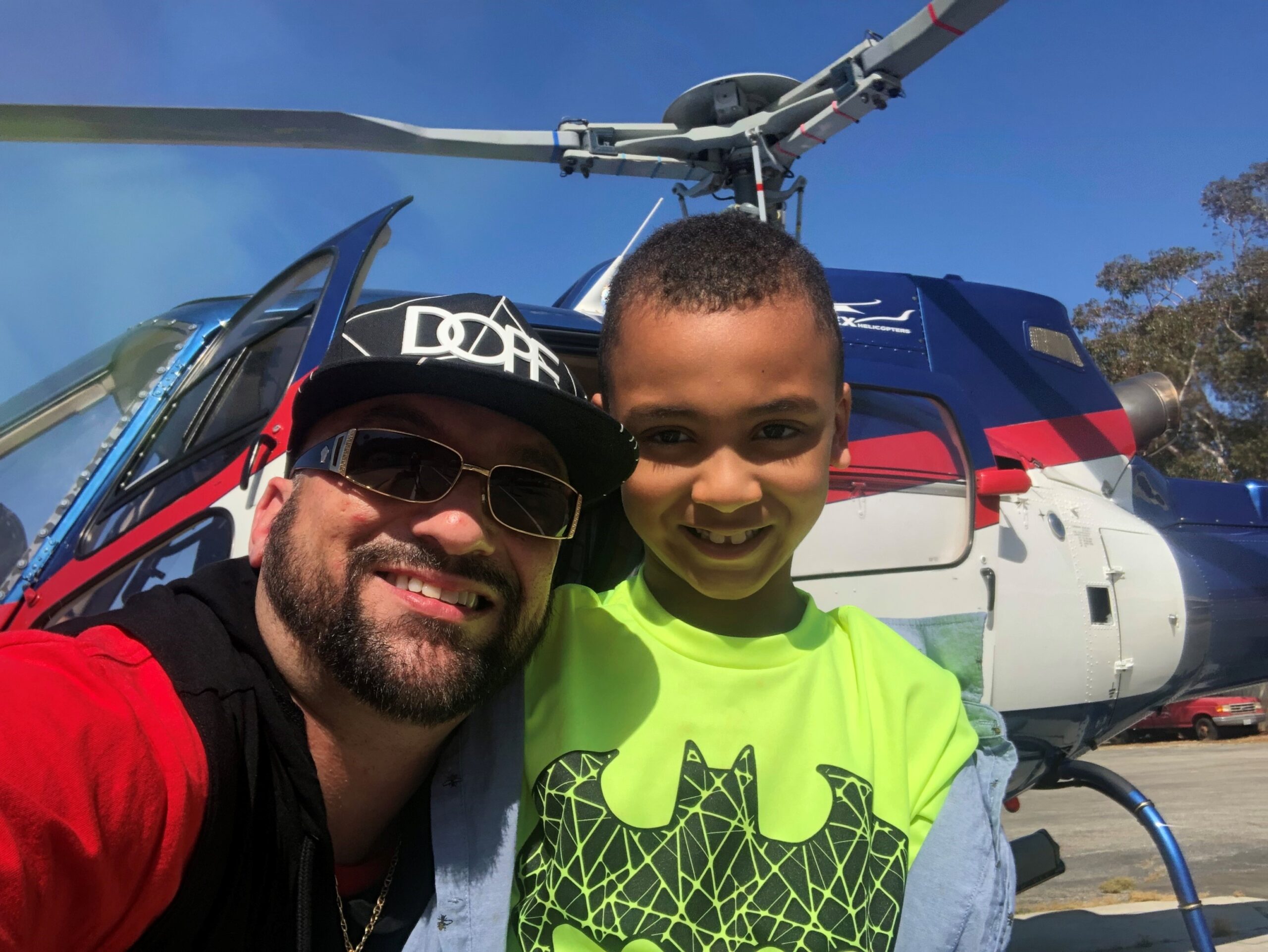


OFFICER HUNTLEMAN WONT BE A COP LONG. HE IS A LIAR, A FRAMER, AND A CONSTITUTINOAL RIGHTS VIOLATOR. HE IS A POOR BANKRUPT CRIMINAL NOT A COP BUT A PIG 🐖 🐷 WALMART IS ALWAYS HIRING BRYAN, YOU WILL BE ADDRESS BY A FIRST NAME NAMECARD AS WALMART EMPLOYEE, THEY HAVE RETIREMENT PLANS, ALBEIT NOT AS GOOD AS THE POLICE DEPARTMENT
WHEN THE LAST TIME YOU ROAMED THE OCEAN ON YOUR BOAT WITH YOUR KID?
WHEN THE LAST TIME YOU HAD YOUR KID DRIVE IN YOUR LAMBO?
WHEN THE LAST TIME YOUR FLEW A HELICOPTER?
AND BESIDE MONEY WHICH I TRUMP YOUR PUNK BROKE BANKRUPT ASS IN… MONEY MEANS NOTHING TO ME
MONEY IS A TOOL FOR LIVING, YOU NEED IT, I DO NOT!
GOD HAS BLESSED ME FOR HARD WORK AND DEDICATION AND PREACHING HIS WORD.
GOD WORKS ON THOSE WHO WORK FOR HIM
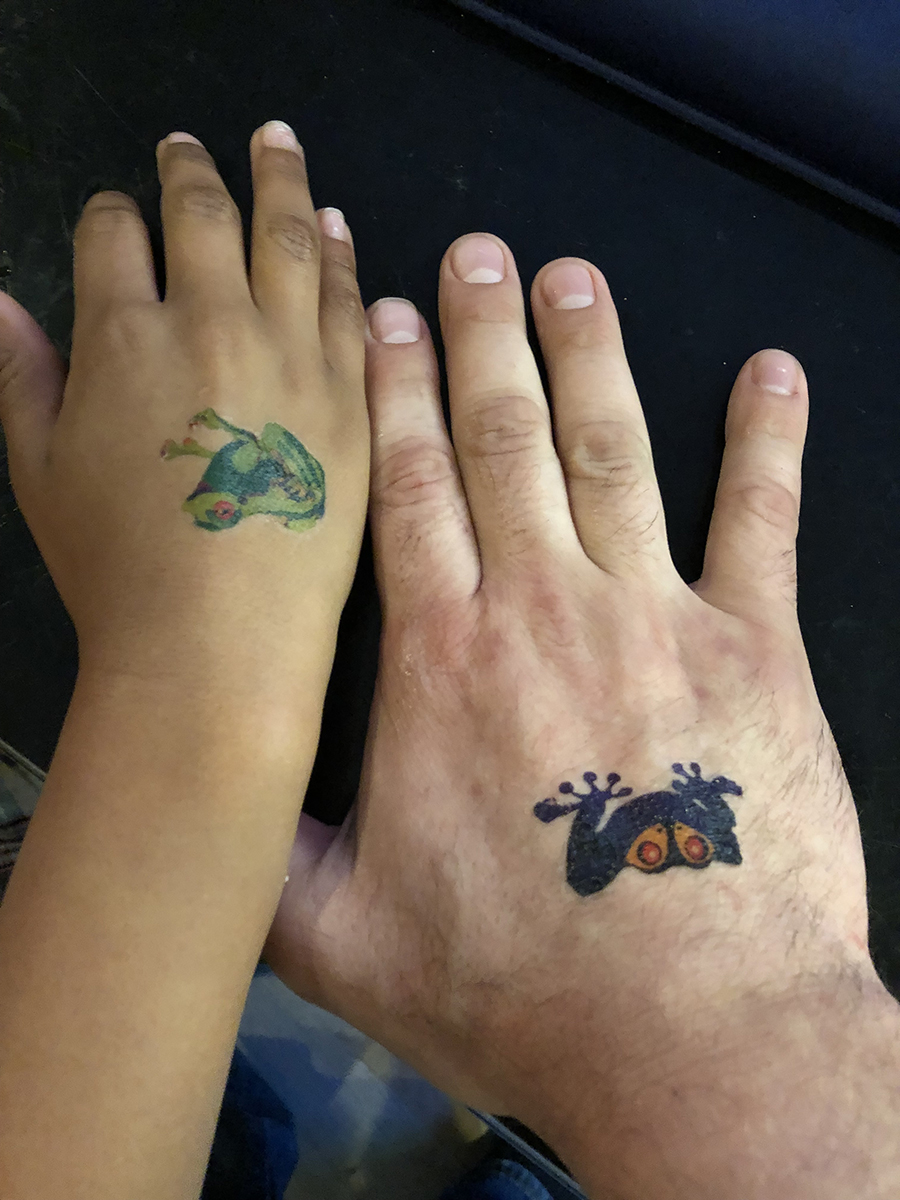
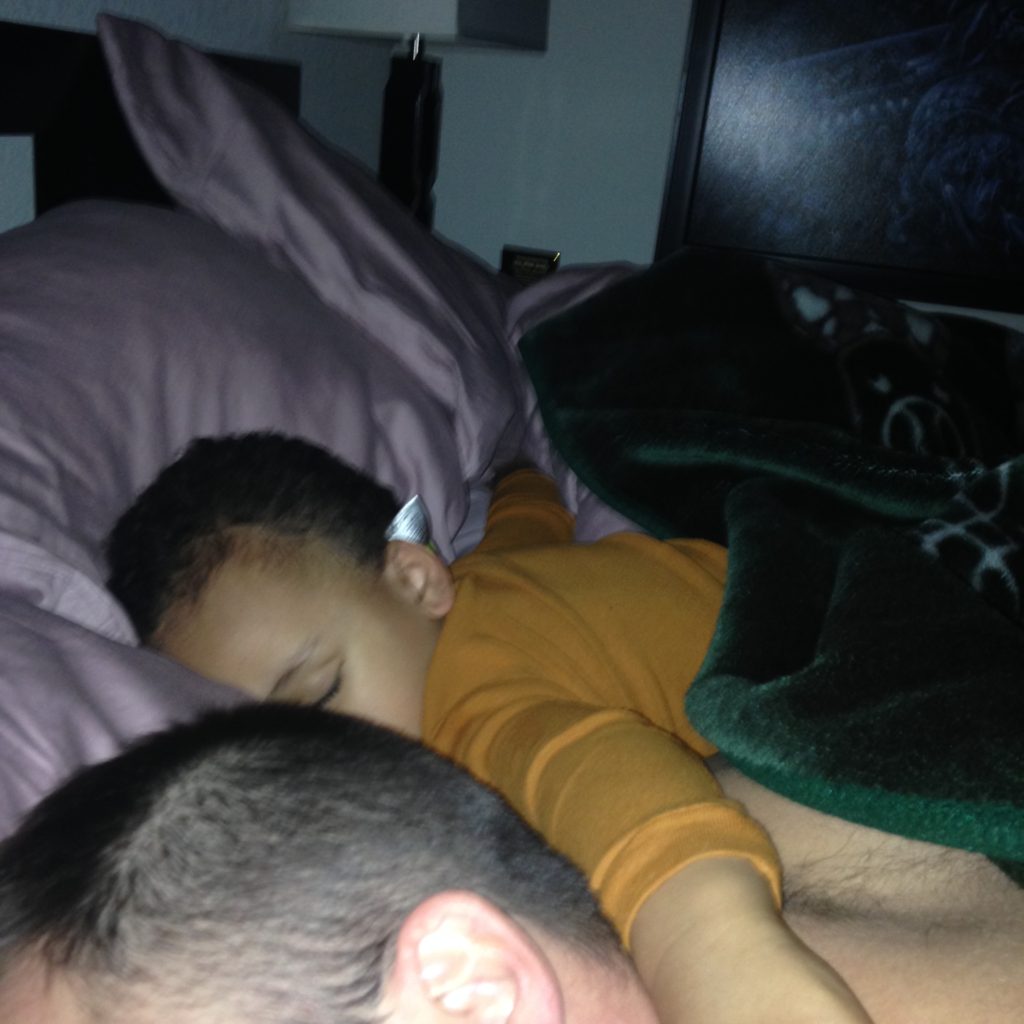

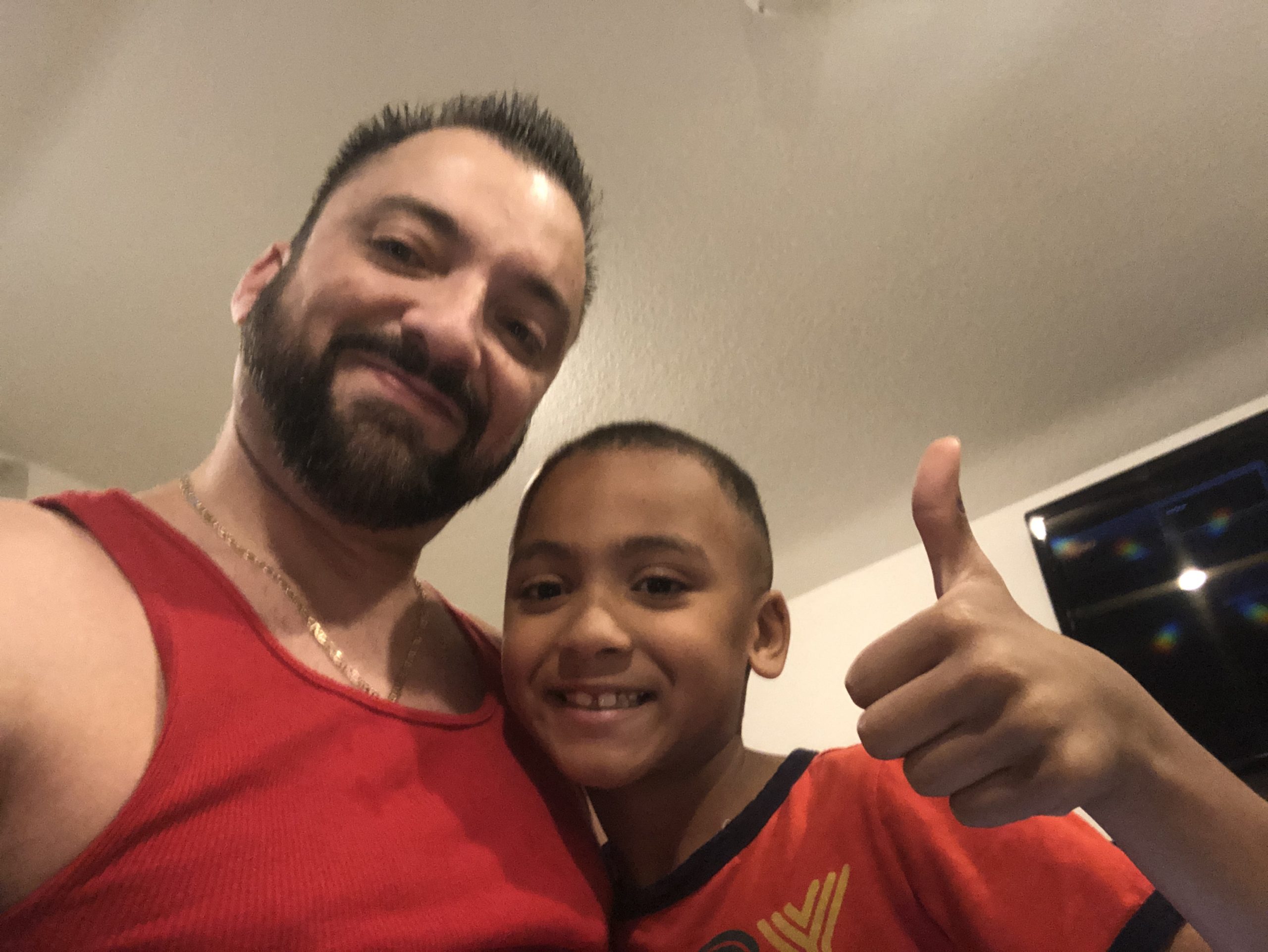
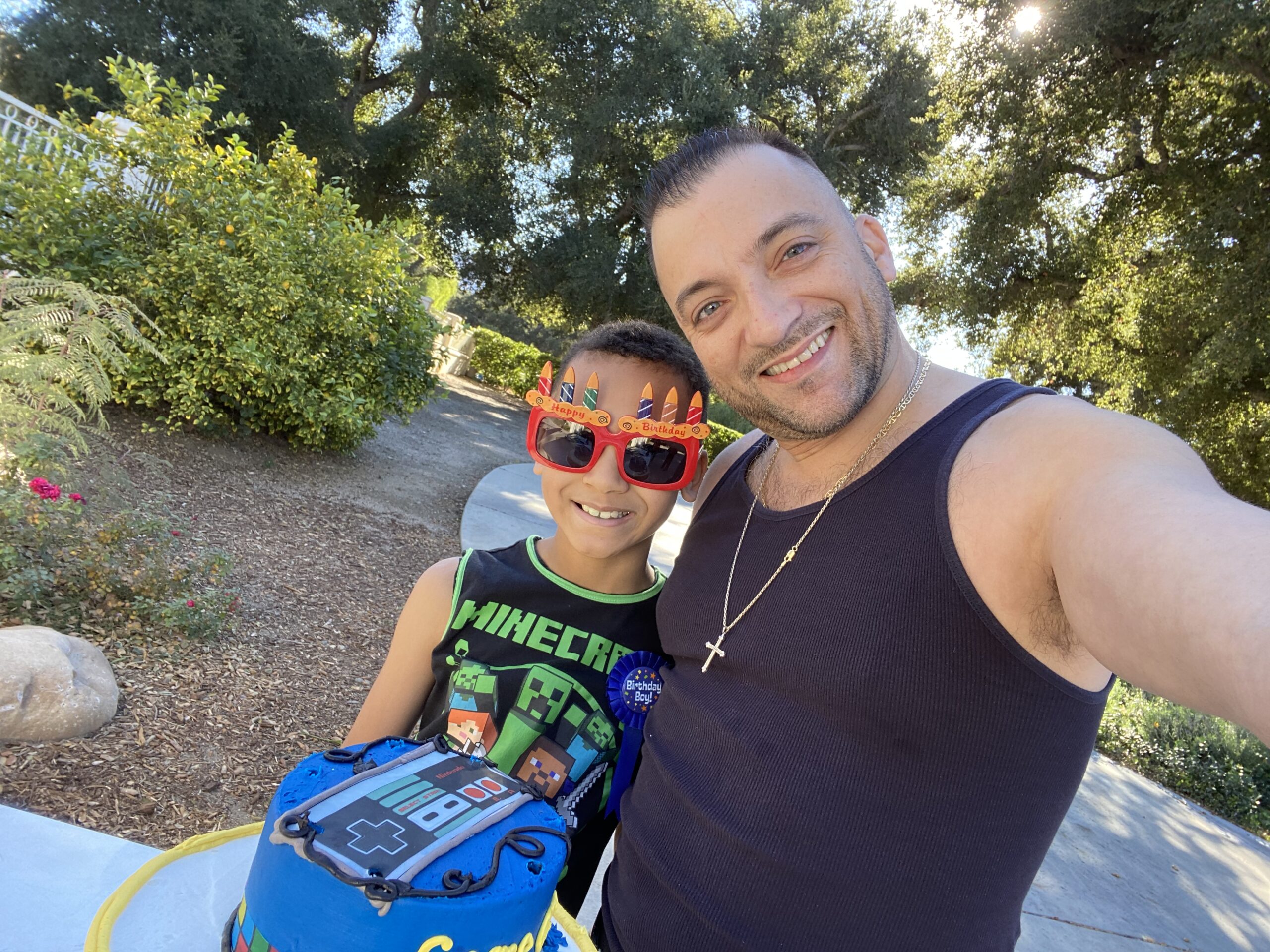
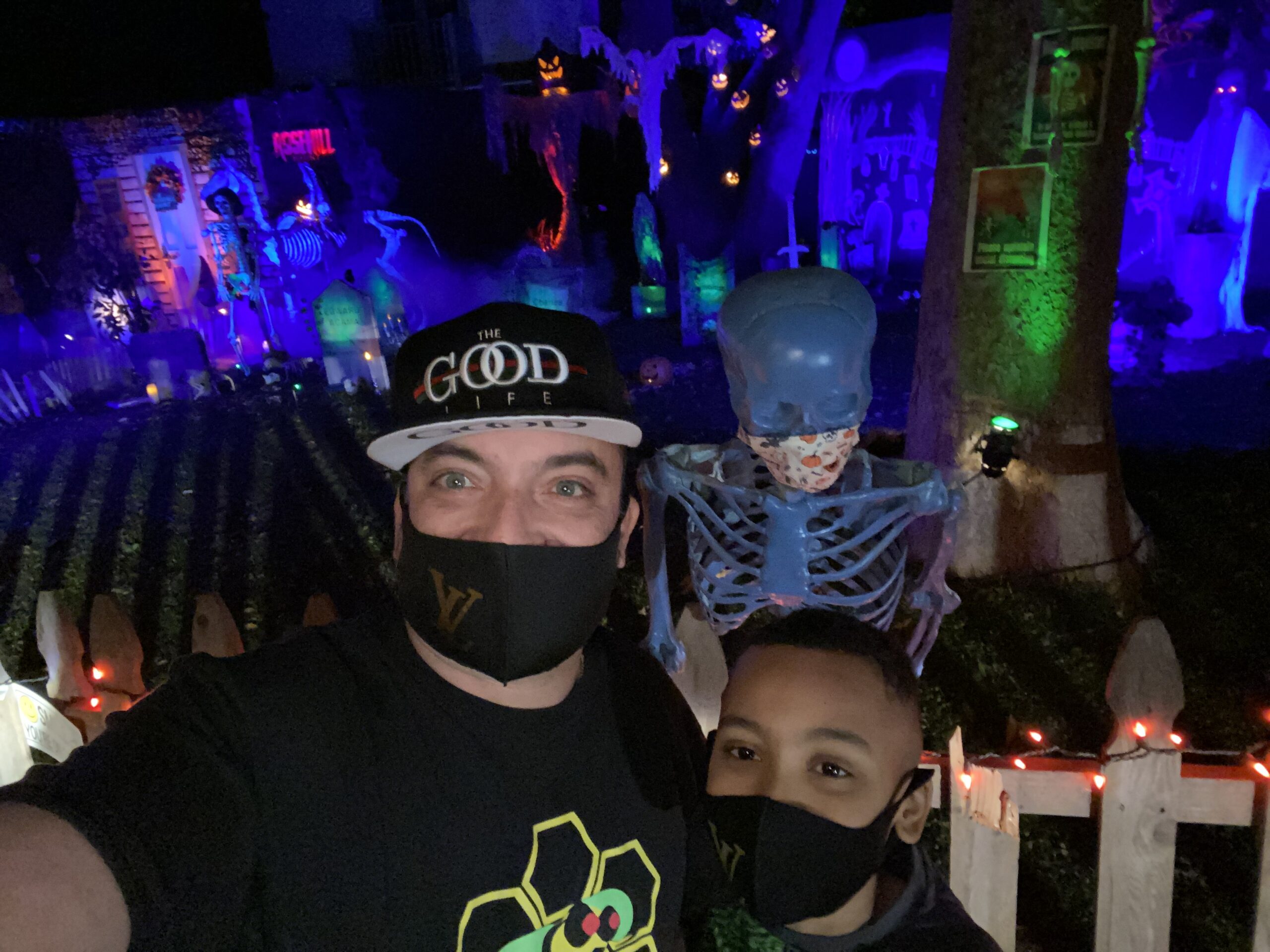

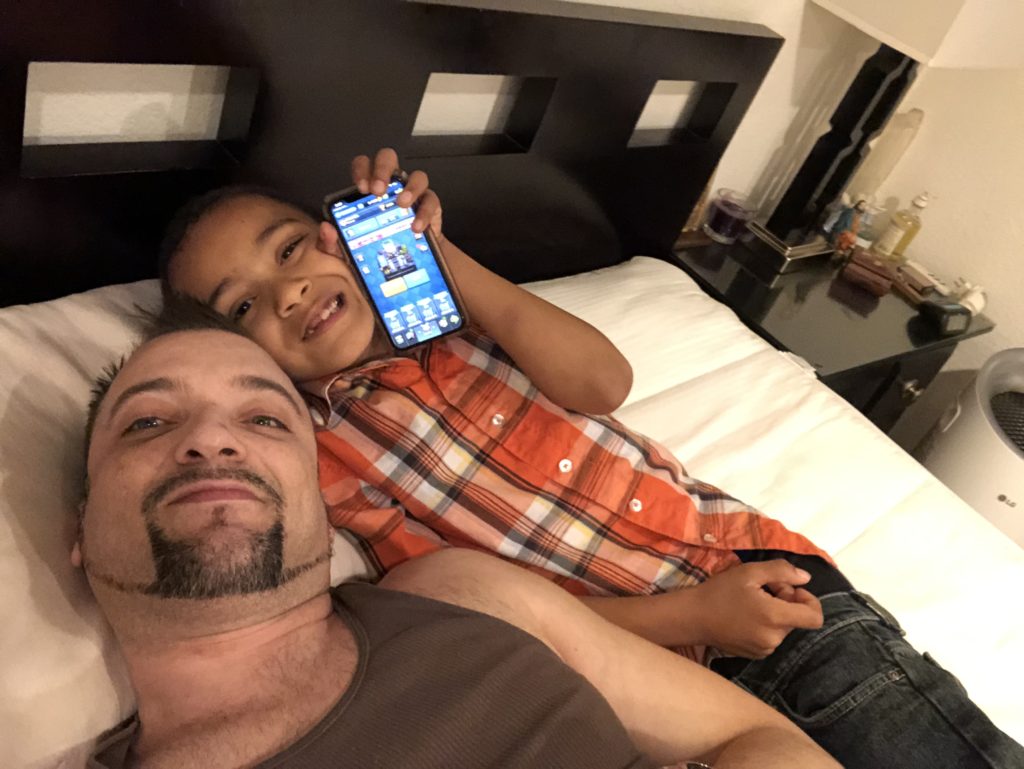

YOU KNONW WHY? GOD IS TAUGHT IN MY HOME FROM DAY 1


I HAVE THE RESEPCT AND LOVE OF MY SON AND NOT TO MANY FATHERS CAN SAY THAT
YOU INTERUPTED AND PARTICIPATED IN DESTRUCTION OF A FAMILY UNIT AND LETTING EVIL AROUND A CHILD MY CHILD, LAWS WERE SET IN PLACE AND YOU IGNORED BOTH THE WARRANT AND JUDGES ORDER TO NOT HAVE THE SEX OFFENDER THERE! YOU ARE A FUCK WAD AND FINISHED IN LAW, GO TO WALMART SIGNUP EARLY YOU WILL NEED PLAN B NOW!@
YOU HAVE FUCKED UP
TIME FOR GETTING A NEW CARRER AFTER YOU ARE HELD ACCOUNTABLE
DISTRICT ATTORNEY & PAUL TOEPEL PLAY THESE VIDEOS
Rule 1.1 – Competence (DA REPRESENTS THE STATE)
Rule 1.2 – Assisting in a Crime
Rule 3.1 – Meritorious Claims & Contentions
Rule 3.4 – Fairness to Opposing Party and Council
PAUL TOEPEL PLAY THE NEXT VIDEO REMEMBER SUGGESTING ME TO BE MADE A VEXATIOUS LITAGANT YOU PUNK FUCK
Model Rule 3.8 pt.2 – Special Duties of Prosecutors
Learn More: ABA – Functions and Duties of the Prosecutor – Prosecution Conduct
Model Rule 4.1 – Truthfulness in Statements to Others
PAUL TOEPEL PLAY THE NEXT VIDEO
Model Rule 4.4 – Respect for the Rights of Others
PAUL & Mathew TOEPEL LISTEN TO THE NEXT VIDEO
Model Rule 5.1 Responsibilities of a Partner or Supervisory Lawyer
Model Rule 5.2 Responsibilities of a Subordinate Lawyer
Model Rule 8.1 Bar Admission & Disciplinary Matters
Model Rule 8.2 – Judicial & Legal Officials
Model Rule 8.3 – Reporting Professional Misconduct
Model Rule 8.4 pt.1 – Lawyer Misconduct
PAUL TOEPEL LISTEN TO THE NEXT VIDEO
ABA Formal Op. 493 pt.1 – Rule 8.4(g): Purpose, Scope & Application
Model Rule 8.4 pt.2 – Discrimination & Harassment
ECONOMIC STATUS ATTACKS!
Attorney Ethics Rules – FOX 17 Know the Law
To Learn More…. Read MORE Below and click the links Below
Abuse & Neglect – The Mandated Reporters (Police, D.A & Medical & the Bad Actors)
Mandated Reporter Laws – Nurses, District Attorney’s, and Police should listen up
If You Would Like to Learn More About: The California Mandated Reporting LawClick Here
To Read the Penal Code § 11164-11166 – Child Abuse or Neglect Reporting Act – California Penal Code 11164-11166Article 2.5. (CANRA) Click Here
Mandated Reporter formMandated ReporterFORM SS 8572.pdf – The Child Abuse
ALL POLICE CHIEFS, SHERIFFS AND COUNTY WELFARE DEPARTMENTS INFO BULLETIN:
Click Here Officers and DA’s for (Procedure to Follow)
It Only Takes a Minute to Make a Difference in the Life of a Child learn more below
You can learn more here California Child Abuse and Neglect Reporting Law its a PDF file
Learn More About True Threats Here below….
We also have the The Brandenburg v. Ohio (1969) – 1st Amendment
CURRENT TEST = We also have the The ‘Brandenburg test’ for incitement to violence – 1st Amendment
We also have the The Incitement to Imminent Lawless Action Test– 1st Amendment
We also have the True Threats – Virginia v. Black is most comprehensive Supreme Court definition – 1st Amendment
We also have the Watts v. United States – True Threat Test – 1st Amendment
We also have the Clear and Present Danger Test – 1st Amendment
We also have the Gravity of the Evil Test – 1st Amendment
We also have the Elonis v. United States (2015) – Threats – 1st Amendment
Learn More About What is Obscene…. be careful about education it may enlighten you
We also have the Miller v. California – 3 Prong Obscenity Test (Miller Test) – 1st Amendment
We also have the Obscenity and Pornography – 1st Amendment
Learn More About Police, The Government Officials and You….
$$ Retaliatory Arrests and Prosecution $$
Anti-SLAPP Law in California
Freedom of Assembly – Peaceful Assembly – 1st Amendment Right
We also have the Brayshaw v. City of Tallahassee – 1st Amendment – Posting Police Address
We also have the Publius v. Boyer-Vine –1st Amendment – Posting Police Address
We also have the Lozman v. City of Riviera Beach, Florida (2018) – 1st Amendment – Retaliatory Police Arrests
We also have the Nieves v. Bartlett (2019) – 1st Amendment – Retaliatory Police Arrests
We also have the Hartman v. Moore (2006) – 1st Amendment – Retaliatory Police Arrests
Retaliatory Prosecution Claims Against Government Officials – 1st Amendment
We also have the Reichle v. Howards (2012) – 1st Amendment – Retaliatory Police Arrests
Retaliatory Prosecution Claims Against Government Officials – 1st Amendment
Freedom of the Press – Flyers, Newspaper, Leaflets, Peaceful Assembly – 1$t Amendment – Learn More Here
Vermont’s Top Court Weighs: Are KKK Fliers – 1st Amendment Protected Speech
We also have the Insulting letters to politician’s home are constitutionally protected, unless they are ‘true threats’ – Letters to Politicians Homes – 1st Amendment
We also have the First Amendment Encyclopedia very comprehensive – 1st Amendment
Dwayne Furlow v. Jon Belmar – Police Warrant – Immunity Fail – 4th, 5th, & 14th Amendment
ARE PEOPLE LYING ON YOU? CAN YOU PROVE IT? IF YES…. THEN YOU ARE IN LUCK!
Penal Code 118 PC – California Penalty of “Perjury” Law
Federal Perjury – Definition by Law
Penal Code 132 PC – Offering False Evidence
Penal Code 134 PC – Preparing False Evidence
Penal Code 118.1 PC – Police Officer$ Filing False Report$
Spencer v. Peters– Police Fabrication of Evidence – 14th Amendment
Penal Code 148.5 PC – Making a False Police Report in California
Penal Code 115 PC – Filing a False Document in California
Sanctions and Attorney Fee Recovery for Bad Actors
FAM § 3027.1 – Attorney’s Fees and Sanctions For False Child Abuse Allegations – Family Code 3027.1 – Click Here
FAM § 271 – Awarding Attorney Fees– Family Code 271 Family Court Sanction Click Here
Awarding Discovery Based Sanctions in Family Law Cases – Click Here
FAM § 2030 – Bringing Fairness & Fee Recovery – Click Here
Zamos v. Stroud – District Attorney Liable for Bad Faith Action – Click Here
Mi$Conduct – Pro$ecutorial Mi$Conduct
Prosecutor$
Attorney Rule$ of Engagement – Government (A.K.A. THE PRO$UCTOR) and Public/Private Attorney
What is a Fiduciary Duty; Breach of Fiduciary Duty
The Attorney’s Sworn Oath
Malicious Prosecution / Prosecutorial Misconduct – Know What it is!
New Supreme Court Ruling – makes it easier to sue police
Possible courses of action Prosecutorial Misconduct
Misconduct by Judges & Prosecutor – Rules of Professional Conduct
Functions and Duties of the Prosecutor – Prosecution Conduct
Information On Prosecutorial Discretion
Fighting Discovery Abuse in Litigation – Forensic & Investigative Accounting – Click Here
Criminal Motions § 1:9 – Motion for Recusal of Prosecutor
Pen. Code, § 1424 – Recusal of Prosecutor
Removing Corrupt Judges, Prosecutors, Jurors and other Individuals & Fake Evidence from Your Case
National District Attorneys Association puts out its standards
National Prosecution Standards – NDD can be found here
The Ethical Obligations of Prosecutors in Cases Involving Postconviction Claims of Innocence
ABA – Functions and Duties of the Prosecutor – Prosecution Conduct
Prosecutor’s Duty Duty to Disclose Exculpatory Evidence Fordham Law Review PDF
Chapter 14 Disclosure of Exculpatory and Impeachment Information PDF
Mi$Conduct – Judicial Mi$Conduct
Judge$
Prosecution Of Judges For Corrupt Practice$
Code of Conduct for United States Judge$
Disqualification of a Judge for Prejudice
Judicial Immunity from Civil and Criminal Liability
Recusal of Judge – CCP § 170.1 – Removal a Judge – How to Remove a Judge
l292 Disqualification of Judicial Officer – C.C.P. 170.6 Form
How to File a Complaint Against a Judge in California?
Commission on Judicial Performance – Judge Complaint Online Form
Why Judges, District Attorneys or Attorneys Must Sometimes Recuse Themselves
Removing Corrupt Judges, Prosecutors, Jurors and other Individuals & Fake Evidence from Your Case
Misconduct by Government Know Your Rights Click Here (must read!)
Under 42 U.S.C. $ection 1983 – Recoverable Damage$
42 U.S. Code § 1983 – Civil Action for Deprivation of Right$
18 U.S. Code § 242 – Deprivation of Right$ Under Color of Law
18 U.S. Code § 241 – Conspiracy against Right$
Section 1983 Lawsuit – How to Bring a Civil Rights Claim
Suing for Misconduct – Know More of Your Right$
Police Misconduct in California – How to Bring a Lawsuit
How to File a complaint of Police Misconduct? (Tort Claim Forms here as well)
Deprivation of Rights – Under Color of the Law
What is Sua Sponte and How is it Used in a California Court?
Removing Corrupt Judges, Prosecutors, Jurors
and other Individuals & Fake Evidence from Your Case
Anti-SLAPP Law in California
Freedom of Assembly – Peaceful Assembly – 1st Amendment Right
How to Recover “Punitive Damages” in a California Personal Injury Case
Pro Se Forms and Forms Information(Tort Claim Forms here as well)
What is Tort?
PARENT CASE LAW
RELATIONSHIP WITH YOUR CHILDREN &
YOUR CONSTITUIONAL RIGHT$ + RULING$
YOU CANNOT GET BACK TIME BUT YOU CAN HIT THOSE IMMORAL NON CIVIC MINDED PUNKS WHERE THEY WILL FEEL YOU = THEIR BANK
Family Law Appeal – Learn about appealing a Family Court Decision Here
9.3 Section 1983 Claim Against Defendant as (Individuals) —
14th Amendment this CODE PROTECT$ all US CITIZEN$
Amdt5.4.5.6.2 – Parental and Children’s Rights –
5th Amendment this CODE PROTECT$ all US CITIZEN$
9.32 – Interference with Parent / Child Relationship –
14th Amendment this CODE PROTECT$ all US CITIZEN$
California Civil Code Section 52.1
Interference with exercise or enjoyment of individual rights
Parent’s Rights & Children’s Bill of Rights
SCOTUS RULINGS FOR YOUR PARENT RIGHTS
SEARCH of our site for all articles relating for PARENTS RIGHTS Help!
Child’s Best Interest in Custody Cases
Are You From Out of State (California)? FL-105 GC-120(A)
Declaration Under Uniform Child Custody Jurisdiction and Enforcement Act (UCCJEA)
Learn More:Family Law Appeal
Necessity Defense in Criminal Cases
GRANDPARENT CASE LAW
Do Grandparents Have Visitation Rights? If there is an Established Relationship then Yes
Third “PRESUMED PARENT” Family Code 7612(C) – Requires Established Relationship Required
Cal State Bar PDF to read about Three Parent Law –
The State Bar of California family law news issue4 2017 vol. 39, no. 4.pdf
Distinguishing Request for Custody from Request for Visitation
Troxel v. Granville, 530 U.S. 57 (2000) – Grandparents – 14th Amendment
S.F. Human Servs. Agency v. Christine C. (In re Caden C.)
9.32 Particular Rights – Fourteenth Amendment – Interference with Parent / Child Relationship
Child’s Best Interest in Custody Cases
When is a Joinder in a Family Law Case Appropriate? – Reason for Joinder
Joinder In Family Law Cases – CRC Rule 5.24
GrandParents Rights To Visit
Family Law Packet OC Resource Center
Family Law Packet SB Resource Center
Motion to vacate an adverse judgment
Mandatory Joinder vs Permissive Joinder – Compulsory vs Dismissive Joinder
When is a Joinder in a Family Law Case Appropriate?
Kyle O. v. Donald R. (2000) 85 Cal.App.4th 848
Punsly v. Ho (2001) 87 Cal.App.4th 1099
Zauseta v. Zauseta (2002) 102 Cal.App.4th 1242
S.F. Human Servs. Agency v. Christine C. (In re Caden C.)
DUE PROCESS READS>>>>>>
Due Process vs Substantive Due Process learn more HERE
Understanding Due Process – This clause caused over 200 overturns in just DNA alone Click Here
Mathews v. Eldridge – Due Process – 5th & 14th Amendment Mathews Test – 3 Part Test– Amdt5.4.5.4.2 Mathews Test
“Unfriending” Evidence – 5th Amendment
At the Intersection of Technology and Law
We also have the Introducing TEXT & EMAIL Digital Evidence in California Courts – 1st Amendment
so if you are interested in learning about Introducing Digital Evidence in California State Courts
click here for SCOTUS rulings
Retrieving Evidence / Internal Investigation Case
Conviction Integrity Unit (“CIU”) of the Orange County District Attorney OCDA – Click Here
Fighting Discovery Abuse in Litigation – Forensic & Investigative Accounting – Click Here
Orange County Data, BodyCam, Police Report, Incident Reports,
and all other available known requests for data below:
APPLICATION TO EXAMINE LOCAL ARREST RECORD UNDER CPC 13321 Click Here
Learn About Policy 814: Discovery Requests OCDA Office – Click Here
Request for Proof In-Custody Form Click Here
Request for Clearance Letter Form Click Here
Application to Obtain Copy of State Summary of Criminal HistoryForm Click Here
Request Authorization Form Release of Case Information – Click Here
Texts / Emails AS EVIDENCE: Authenticating Texts for California Courts
Can I Use Text Messages in My California Divorce?
Two-Steps And Voila: How To Authenticate Text Messages
How Your Texts Can Be Used As Evidence?
California Supreme Court Rules:
Text Messages Sent on Private Government Employees Lines
Subject to Open Records Requests
case law: City of San Jose v. Superior Court – Releasing Private Text/Phone Records of Government Employees
Public Records Practices After the San Jose Decision
The Decision Briefing Merits After the San Jose Decision
CPRA Public Records Act Data Request – Click Here
Here is the Public Records Service Act Portal for all of CALIFORNIA Click Here
Rules of Admissibility – Evidence Admissibility
Confrontation Clause – Sixth Amendment
Exceptions To The Hearsay Rule – Confronting Evidence
Prosecutor’s Obligation to Disclose Exculpatory Evidence
Successful Brady/Napue Cases – Suppression of Evidence
Cases Remanded or Hearing Granted Based on Brady/Napue Claims
Unsuccessful But Instructive Brady/Napue Cases
ABA – Functions and Duties of the Prosecutor – Prosecution Conduct
Frivolous, Meritless or Malicious Prosecution – fiduciary duty
Appealing/Contesting Case/Order/Judgment/Charge/ Suppressing Evidence
First Things First: What Can Be Appealed and What it Takes to Get Started – Click Here
Options to Appealing– Fighting A Judgment Without Filing An Appeal Settlement Or Mediation
Cal. Code Civ. Proc. § 1008 Motion to Reconsider
Penal Code 1385 – Dismissal of the Action for Want of Prosecution or Otherwise
Penal Code 1538.5 – Motion To Suppress Evidence in a California Criminal Case
CACI No. 1501 – Wrongful Use of Civil Proceedings
Penal Code “995 Motions” in California – Motion to Dismiss
WIC § 700.1 – If Court Grants Motion to Suppress as Evidence
Suppression Of Exculpatory Evidence / Presentation Of False Or Misleading Evidence – Click Here
Notice of Appeal — Felony (Defendant) (CR-120) 1237, 1237.5, 1538.5(m) – Click Here
California Motions in Limine – What is a Motion in Limine?
Cleaning Up Your Record
Penal Code 851.8 PC – Certificate of Factual Innocence in California
Petition to Seal and Destroy Adult Arrest Records – Download the PC 851.8 BCIA 8270 Form Here
SB 393: The Consumer Arrest Record Equity Act – 851.87 – 851.92 & 1000.4 – 11105 – CARE ACT
Expungement California – How to Clear Criminal Records Under Penal Code 1203.4 PC
How to Vacate a Criminal Conviction in California – Penal Code 1473.7 PC
Seal & Destroy a Criminal Record
Cleaning Up Your Criminal Record in California (focus OC County)
Governor Pardons – What Does A Governor’s Pardon Do
How to Get a Sentence Commuted (Executive Clemency) in California
How to Reduce a Felony to a Misdemeanor – Penal Code 17b PC Motion
 Epic Criminal / Civil Right$ SCOTUS Help – Click Here
Epic Criminal / Civil Right$ SCOTUS Help – Click Here
 Epic Parents SCOTUS Ruling – Parental Right$ Help – Click Here
Epic Parents SCOTUS Ruling – Parental Right$ Help – Click Here
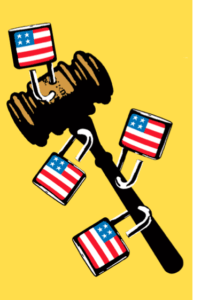 Judge’s & Prosecutor’s Jurisdiction– SCOTUS RULINGS on
Judge’s & Prosecutor’s Jurisdiction– SCOTUS RULINGS on
 Prosecutional Misconduct – SCOTUS Rulings re: Prosecutors
Prosecutional Misconduct – SCOTUS Rulings re: Prosecutors
Family Treatment Court Best Practice Standards
Download Here this Recommended Citation
Please take time to learn new UPCOMING
The PROPOSED Parental Rights Amendment
to the US CONSTITUTION Click Here to visit their site
The proposed Parental Rights Amendment will specifically add parental rights in the text of the U.S. Constitution, protecting these rights for both current and future generations.
The Parental Rights Amendment is currently in the U.S. Senate, and is being introduced in the U.S. House.
